Persuasive Essay Guide
Persuasive Essay Examples

30+ Free Persuasive Essay Examples To Get You Started
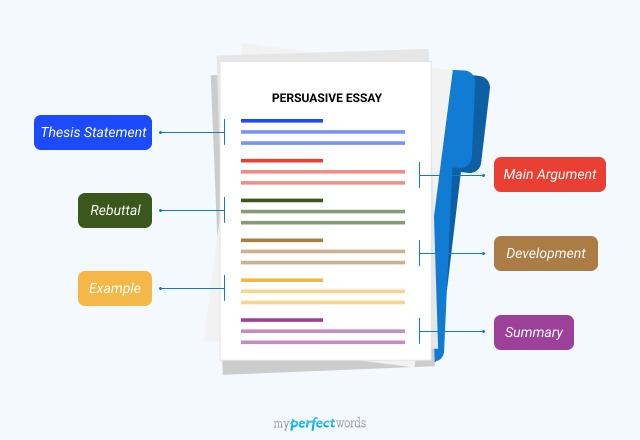
People also read
A Comprehensive Guide to Writing an Effective Persuasive Essay
200+ Persuasive Essay Topics to Help You Out
Learn How to Create a Persuasive Essay Outline
Read Excellent Examples of Persuasive Essay About Gun Control
How to Write a Persuasive Essay About Covid19 | Examples & Tips
Crafting a Convincing Persuasive Essay About Abortion
Learn to Write Persuasive Essay About Business With Examples and Tips
Check Out 12 Persuasive Essay About Online Education Examples
Persuasive Essay About Smoking - Making a Powerful Argument with Examples
Are you looking to improve your persuasive writing skills?
One of the best ways to do that is by reading persuasive essay examples. These examples can show you how to structure your arguments effectively.
But finding good examples can be a challenge. Don't worry, though – we've gathered some helpful persuasive essays for you right here!
So, if you're in search of persuasive essay examples to help you write your own, you're in the right place.
Keep reading this blog to explore various examples
- 1. Persuasive Essay Examples For Students
- 2. Persuasive Essay Examples for Different Formats
- 3. Persuasive Essay Outline Examples
- 4. Persuasive Essay Format Example
- 5. How to Write A Persuasive Essay With Examples
- 6. How to End a Persuasive Essay Examples
- 7. Catchy Persuasive Essay Topics
Persuasive Essay Examples For Students
A persuasive essay aims to convince the reader of the author’s point of view.
To find the right path for your essay, it's helpful to go through some examples. Similarly, good essay examples also help to avoid any potential pitfalls and offer clear information to the readers to adopt.
Here are some persuasive essay examples pdf:
3rd-grade Persuasive Essay Example
4th-grade Persuasive Essay Example
Persuasive Essay Example 5th-grade pdf
Persuasive Essay Examples for 6th Grade pdf
7th-grade Persuasive Essay Example
8th-grade Persuasive Essay Example
Persuasive Essay Examples Grade 10
11th-grade Persuasive Essay Example
Persuasive Writing Example For Kids
Persuasive Essay Examples High School
The following are good persuasive essay examples for high school. Having a look at them will help you understand better.
High-school Persuasive Essay Example
Examples of Persuasive Essay in Everyday Life
Persuasive Essay Examples for Middle School
Check out these persuasive essay examples for middle school to get a comprehensive idea of the format structure.
Persuasive Essay Examples Middle School
Short Persuasive Essay Example
Persuasive Essay Examples for College Students
Essay writing at the college level becomes more difficult and complicated. We have provided you with top-notch college persuasive and argumentative essay examples here.
Read them to understand the essay writing process easily.
Persuasive Essay Examples College
Higher English Persuasive Essay Example
Persuasive Essay About Smoking
Argumentative and Persuasive Examples
Persuasive Essay Examples For University
It becomes even more challenging to draft a perfect essay at the university level. Have a look at the below examples of a persuasive essay to get an idea of writing one.
University Persuasive Essay Example
5 Paragraph Persuasive Essay Example
Persuasive Essay Examples for Different Formats
A persuasive essay can be written in several formats. For instance, you can write the usual 5-paragraph essay, or even something longer or shorter.
Below are a few sample essays in various common formats.
Persuasive Essay Examples 5 Paragraph
Persuasive Essay Examples 3 Paragraph
Short Persuasive Essay Examples
These examples tell you how to remain convincing and persuasive regardless of the essay format you use.
Persuasive Essay Outline Examples
Creating an impressive outline is the most important step for writing a persuasive essay. It helps to organize thoughts and make the writing process easier.
A standard outline consists of the following sections.
- Introduction
- Body Paragraphs
Have a look at the following persuasive essay outline template examples.
Persuasive Essay Outline
Persuasive Essay Template
Persuasive Essay Format Example
A persuasive essay outline is bound to follow a specific format and structure. The main elements of a persuasive essay format are as follows.
- Font: Times New Roman, Georgia, or Arial
- Font Size: 16pt for the headlines and 12pt for the rest of the text
- Alignment: Justified
- Spacing: Double spacing
- Word Count: It usually contains 500 to 2000 words
How to Write A Persuasive Essay With Examples
Planning an essay before starting writing is essential to produce an organized and structured writing piece. So, it is better to understand the concept beforehand to impress your instructor.
The below example will show a good starting to an essay.
A Good Start for a Persuasive Essay - Short Example
How to Start a Persuasive Essay Examples
The introduction is the first part of an essay and your first chance to grab the reader's attention. It should clearly state the essay's purpose and give the reader a clear idea of what to expect.
A compelling persuasive essay introduction must have the following elements.
- Hook statement + topic
- A strong thesis statement
- Your arguments
Here are some examples of persuasive essay introductions to help you make a compelling start:
Introduction Persuasive Essay Example
Persuasive Essay Thesis Statement Examples
Persuasive Essay Hook Examples
How to End a Persuasive Essay Examples
Just like the introduction, the conclusion of the persuasive essay is equally important. It is considered as the last impression of your writing piece to the audience.
A good conclusion paragraph must include the following aspects.
- Restate the thesis statement or hypothesis
- Summarize the key arguments
- Avoid being obvious
- Include a call to action
Have a look at the document to explore the sample conclusions of a persuasive essay.
Conclusion Persuasive Essay Examples
Catchy Persuasive Essay Topics
Now that you have read some good examples, it's time to write your own persuasive essay.
But what should you write about? You can write persuasive essays about any topic, from business and online education to controversial topics like abortion , gun control , and more.
Here is a list of ten persuasive essay topics that you can use to grab your reader's attention and make them think:
- Should the government increase taxes to fund public health initiatives?
- Is the current education system effective in preparing students for college and the workplace?
- Should there be tighter gun control laws?
- Should schools have uniforms or a dress code?
- Are standardized tests an accurate measure of student performance?
- Should students be required to take physical education courses?
- Is undocumented immigration a legitimate cause for concern in the United States?
- Is affirmative action still necessary in today’s society?
- How much, if any, regulation should there be on technology companies?
- Is the death penalty an appropriate form of punishment for serious crimes?
Check out two examples on similar topics:
Political Persuasive Essay Examples
Persuasive Essay Examples About Life
Need more topic ideas? Check out our extensive list of unique persuasive essay topics and get started!
But if you're still feeling stuck, don't worry. Our persuasive essay writing service is here to the rescue!
Our experienced writers specialize in creating top-notch essays on a wide range of topics. Whether it's a challenging persuasive essay or any other type, we've got you covered.
Take advantage of our reliable essay writing service today!

Write Essay Within 60 Seconds!

Caleb S. has been providing writing services for over five years and has a Masters degree from Oxford University. He is an expert in his craft and takes great pride in helping students achieve their academic goals. Caleb is a dedicated professional who always puts his clients first.

Paper Due? Why Suffer? That’s our Job!
Keep reading

Have a language expert improve your writing
Run a free plagiarism check in 10 minutes, generate accurate citations for free.
- Knowledge Base
- How to write an argumentative essay | Examples & tips
How to Write an Argumentative Essay | Examples & Tips
Published on July 24, 2020 by Jack Caulfield . Revised on July 23, 2023.
An argumentative essay expresses an extended argument for a particular thesis statement . The author takes a clearly defined stance on their subject and builds up an evidence-based case for it.
Instantly correct all language mistakes in your text
Upload your document to correct all your mistakes in minutes

Table of contents
When do you write an argumentative essay, approaches to argumentative essays, introducing your argument, the body: developing your argument, concluding your argument, other interesting articles, frequently asked questions about argumentative essays.
You might be assigned an argumentative essay as a writing exercise in high school or in a composition class. The prompt will often ask you to argue for one of two positions, and may include terms like “argue” or “argument.” It will frequently take the form of a question.
The prompt may also be more open-ended in terms of the possible arguments you could make.
Argumentative writing at college level
At university, the vast majority of essays or papers you write will involve some form of argumentation. For example, both rhetorical analysis and literary analysis essays involve making arguments about texts.
In this context, you won’t necessarily be told to write an argumentative essay—but making an evidence-based argument is an essential goal of most academic writing, and this should be your default approach unless you’re told otherwise.
Examples of argumentative essay prompts
At a university level, all the prompts below imply an argumentative essay as the appropriate response.
Your research should lead you to develop a specific position on the topic. The essay then argues for that position and aims to convince the reader by presenting your evidence, evaluation and analysis.
- Don’t just list all the effects you can think of.
- Do develop a focused argument about the overall effect and why it matters, backed up by evidence from sources.
- Don’t just provide a selection of data on the measures’ effectiveness.
- Do build up your own argument about which kinds of measures have been most or least effective, and why.
- Don’t just analyze a random selection of doppelgänger characters.
- Do form an argument about specific texts, comparing and contrasting how they express their thematic concerns through doppelgänger characters.
Prevent plagiarism. Run a free check.
An argumentative essay should be objective in its approach; your arguments should rely on logic and evidence, not on exaggeration or appeals to emotion.
There are many possible approaches to argumentative essays, but there are two common models that can help you start outlining your arguments: The Toulmin model and the Rogerian model.
Toulmin arguments
The Toulmin model consists of four steps, which may be repeated as many times as necessary for the argument:
- Make a claim
- Provide the grounds (evidence) for the claim
- Explain the warrant (how the grounds support the claim)
- Discuss possible rebuttals to the claim, identifying the limits of the argument and showing that you have considered alternative perspectives
The Toulmin model is a common approach in academic essays. You don’t have to use these specific terms (grounds, warrants, rebuttals), but establishing a clear connection between your claims and the evidence supporting them is crucial in an argumentative essay.
Say you’re making an argument about the effectiveness of workplace anti-discrimination measures. You might:
- Claim that unconscious bias training does not have the desired results, and resources would be better spent on other approaches
- Cite data to support your claim
- Explain how the data indicates that the method is ineffective
- Anticipate objections to your claim based on other data, indicating whether these objections are valid, and if not, why not.
Rogerian arguments
The Rogerian model also consists of four steps you might repeat throughout your essay:
- Discuss what the opposing position gets right and why people might hold this position
- Highlight the problems with this position
- Present your own position , showing how it addresses these problems
- Suggest a possible compromise —what elements of your position would proponents of the opposing position benefit from adopting?
This model builds up a clear picture of both sides of an argument and seeks a compromise. It is particularly useful when people tend to disagree strongly on the issue discussed, allowing you to approach opposing arguments in good faith.
Say you want to argue that the internet has had a positive impact on education. You might:
- Acknowledge that students rely too much on websites like Wikipedia
- Argue that teachers view Wikipedia as more unreliable than it really is
- Suggest that Wikipedia’s system of citations can actually teach students about referencing
- Suggest critical engagement with Wikipedia as a possible assignment for teachers who are skeptical of its usefulness.
You don’t necessarily have to pick one of these models—you may even use elements of both in different parts of your essay—but it’s worth considering them if you struggle to structure your arguments.
Regardless of which approach you take, your essay should always be structured using an introduction , a body , and a conclusion .
Like other academic essays, an argumentative essay begins with an introduction . The introduction serves to capture the reader’s interest, provide background information, present your thesis statement , and (in longer essays) to summarize the structure of the body.
Hover over different parts of the example below to see how a typical introduction works.
The spread of the internet has had a world-changing effect, not least on the world of education. The use of the internet in academic contexts is on the rise, and its role in learning is hotly debated. For many teachers who did not grow up with this technology, its effects seem alarming and potentially harmful. This concern, while understandable, is misguided. The negatives of internet use are outweighed by its critical benefits for students and educators—as a uniquely comprehensive and accessible information source; a means of exposure to and engagement with different perspectives; and a highly flexible learning environment.
The body of an argumentative essay is where you develop your arguments in detail. Here you’ll present evidence, analysis, and reasoning to convince the reader that your thesis statement is true.
In the standard five-paragraph format for short essays, the body takes up three of your five paragraphs. In longer essays, it will be more paragraphs, and might be divided into sections with headings.
Each paragraph covers its own topic, introduced with a topic sentence . Each of these topics must contribute to your overall argument; don’t include irrelevant information.
This example paragraph takes a Rogerian approach: It first acknowledges the merits of the opposing position and then highlights problems with that position.
Hover over different parts of the example to see how a body paragraph is constructed.
A common frustration for teachers is students’ use of Wikipedia as a source in their writing. Its prevalence among students is not exaggerated; a survey found that the vast majority of the students surveyed used Wikipedia (Head & Eisenberg, 2010). An article in The Guardian stresses a common objection to its use: “a reliance on Wikipedia can discourage students from engaging with genuine academic writing” (Coomer, 2013). Teachers are clearly not mistaken in viewing Wikipedia usage as ubiquitous among their students; but the claim that it discourages engagement with academic sources requires further investigation. This point is treated as self-evident by many teachers, but Wikipedia itself explicitly encourages students to look into other sources. Its articles often provide references to academic publications and include warning notes where citations are missing; the site’s own guidelines for research make clear that it should be used as a starting point, emphasizing that users should always “read the references and check whether they really do support what the article says” (“Wikipedia:Researching with Wikipedia,” 2020). Indeed, for many students, Wikipedia is their first encounter with the concepts of citation and referencing. The use of Wikipedia therefore has a positive side that merits deeper consideration than it often receives.
Receive feedback on language, structure, and formatting
Professional editors proofread and edit your paper by focusing on:
- Academic style
- Vague sentences
- Style consistency
See an example

An argumentative essay ends with a conclusion that summarizes and reflects on the arguments made in the body.
No new arguments or evidence appear here, but in longer essays you may discuss the strengths and weaknesses of your argument and suggest topics for future research. In all conclusions, you should stress the relevance and importance of your argument.
Hover over the following example to see the typical elements of a conclusion.
The internet has had a major positive impact on the world of education; occasional pitfalls aside, its value is evident in numerous applications. The future of teaching lies in the possibilities the internet opens up for communication, research, and interactivity. As the popularity of distance learning shows, students value the flexibility and accessibility offered by digital education, and educators should fully embrace these advantages. The internet’s dangers, real and imaginary, have been documented exhaustively by skeptics, but the internet is here to stay; it is time to focus seriously on its potential for good.
If you want to know more about AI tools , college essays , or fallacies make sure to check out some of our other articles with explanations and examples or go directly to our tools!
- Ad hominem fallacy
- Post hoc fallacy
- Appeal to authority fallacy
- False cause fallacy
- Sunk cost fallacy
College essays
- Choosing Essay Topic
- Write a College Essay
- Write a Diversity Essay
- College Essay Format & Structure
- Comparing and Contrasting in an Essay
(AI) Tools
- Grammar Checker
- Paraphrasing Tool
- Text Summarizer
- AI Detector
- Plagiarism Checker
- Citation Generator
An argumentative essay tends to be a longer essay involving independent research, and aims to make an original argument about a topic. Its thesis statement makes a contentious claim that must be supported in an objective, evidence-based way.
An expository essay also aims to be objective, but it doesn’t have to make an original argument. Rather, it aims to explain something (e.g., a process or idea) in a clear, concise way. Expository essays are often shorter assignments and rely less on research.
At college level, you must properly cite your sources in all essays , research papers , and other academic texts (except exams and in-class exercises).
Add a citation whenever you quote , paraphrase , or summarize information or ideas from a source. You should also give full source details in a bibliography or reference list at the end of your text.
The exact format of your citations depends on which citation style you are instructed to use. The most common styles are APA , MLA , and Chicago .
The majority of the essays written at university are some sort of argumentative essay . Unless otherwise specified, you can assume that the goal of any essay you’re asked to write is argumentative: To convince the reader of your position using evidence and reasoning.
In composition classes you might be given assignments that specifically test your ability to write an argumentative essay. Look out for prompts including instructions like “argue,” “assess,” or “discuss” to see if this is the goal.
Cite this Scribbr article
If you want to cite this source, you can copy and paste the citation or click the “Cite this Scribbr article” button to automatically add the citation to our free Citation Generator.
Caulfield, J. (2023, July 23). How to Write an Argumentative Essay | Examples & Tips. Scribbr. Retrieved April 9, 2024, from https://www.scribbr.com/academic-essay/argumentative-essay/
Is this article helpful?

Jack Caulfield
Other students also liked, how to write a thesis statement | 4 steps & examples, how to write topic sentences | 4 steps, examples & purpose, how to write an expository essay, "i thought ai proofreading was useless but..".
I've been using Scribbr for years now and I know it's a service that won't disappoint. It does a good job spotting mistakes”
Persuasive Essay: A Guide for Writing

Ever found yourself wrestling with the challenge of convincing others through your writing? Look no further – our guide is your go-to roadmap for mastering the art of persuasion. In a world where effective communication is key, this article unveils practical tips and techniques to help you produce compelling arguments that captivate your audience. Say goodbye to the struggles of conveying your message – let's learn how to make your persuasive essay informative and truly convincing.
What Is a Persuasive Essay
Persuasive essays are a form of writing that aims to sway the reader's viewpoint or prompt them to take a specific action. In this genre, the author employs logical reasoning and compelling arguments to convince the audience of a particular perspective or stance on a given topic. The persuasive essay typically presents a clear thesis statement, followed by well-structured paragraphs that provide evidence and examples supporting the author's position. The ultimate goal is to inform and influence the reader's beliefs or behavior by appealing to their emotions, logic, and sense of reason. If you need urgent help with this assignment, use our persuasive essay writing service without hesitation.
Which Three Strategies Are Elements of a Persuasive Essay
Working on a persuasive essay is like building a solid argument with three friends: ethos, pathos, and logos. Ethos is about trustworthiness, like when someone vouches for your credibility before making a point. Picture it as your introduction, earning trust from the get-go. Then comes pathos, your emotional storyteller. It's all about making your readers feel something, turning your essay into an experience rather than just a bunch of words. Lastly, logos is your logical thinker, using facts and solid reasoning to beef up your argument. These three work together to engage both the heart and mind of your audience. So, let's see how this trio can take your arguments from so-so to memorable.
In a persuasive essay, ethos functions much like introducing your friend as the go-to expert in their field before they share their insights with a new group. It's about showcasing the writer's credibility, expertise, and trustworthiness through a mix of personal experience, professional background, and perhaps even endorsements. Readers are more likely to buy into an argument when they believe the person presenting it knows their stuff and has a solid ethical standing, creating a foundation of trust. Does this information seem a bit confusing? Then simply type, ‘ write my paper ,’ and our writers will help you immediately.
Now, let's consider pathos – the emotional connection element. Imagine a movie that entertains and makes you laugh, cry, or feel a rush of excitement. Pathos in a persuasive essay aims to tap into your emotions to make you feel something. It's the storyteller in the essay weaving narratives that resonate personally. By sharing relatable anecdotes, vivid imagery, or emotionally charged language, writers can create a powerful connection with readers, turning a dry argument into a compelling human experience that leaves a lasting impression.
Lastly, logos is the cool-headed, logical friend who always has the facts straight. In a persuasive essay, logos presents a strong, well-reasoned argument supported by evidence, data, and solid reasoning. The backbone holds the essay together, appealing to the reader's sense of logic and reason. This might include citing research studies, providing statistical evidence, or employing deductive reasoning to build a solid case. So, think of ethos as your trustworthy friend, pathos as the emotional storyteller, and logos as the rational thinker – together, they create a persuasive essay that speaks to the heart and stands up to critical scrutiny. Choose the persuasive essay format accordingly, depending on how you’d like to approach your readers.
.webp)
Persuasive Essay Outline
Creating an outline for persuasive essay is like sketching a plan for your argument, which is the GPS to help your readers follow along smoothly. Start with an engaging intro that grabs attention and states your main point. Then, organize your body paragraphs, each focusing on one important aspect or evidence backing up your main idea. Mix in ethos (credibility), pathos (emotion), and logos (logic) throughout to make your argument strong. Don't forget to address opposing views and show why your stance is the way to go. Finally, wrap things up with a strong conclusion that reinforces your main points. Here’s a general outline for a persuasive essay:
How to start a persuasive essay? Introduction.
- Hook. Start with a captivating anecdote, surprising fact, or thought-provoking question to grab the reader's attention.
- Background. Provide context for the issue or topic you're addressing.
- Thesis Statement. Clearly state your main argument or position.
Body Paragraphs
Paragraph 1
- Topic Sentence. Introduce the first key point supporting your thesis.
- Supporting Evidence. Include facts, statistics, or examples that back up your point.
- Ethos, Pathos, Logos. Incorporate elements of persuasion to strengthen your argument.
Paragraph 2
- Topic Sentence. Introduce the second key point supporting your thesis.
- Supporting Evidence. Provide relevant information or examples to bolster your argument.
- Ethos, Pathos, Logos. Continue integrating persuasive elements for a well-rounded appeal.
Paragraph 3
- Topic Sentence. Introduce the third key point supporting your thesis.
- Supporting Evidence. Present compelling evidence or examples.
- Ethos, Pathos, Logos. Ensure a balanced use of persuasive strategies.
Counterargument
- Address opposing views. Acknowledge and counter opposing arguments.
- Refutation. Explain why the counterargument is invalid or less convincing.
- Summarize main points. Recap the key arguments from the body paragraphs.
- Call to Action. Encourage readers to take a specific stance, consider your perspective, or engage in further discussion.
Closing Statement
- Leave a lasting impression. End with a powerful statement that reinforces your thesis and strongly impacts the reader.
We recommend you study our guide on how to write an argumentative essay as well, as these two types of assignments are the most common in school and college.
.webp)
Take Your Persuasive Writing to the Next Level!
Give us your task to amaze your readers with our tried-and-true methods
How to WritHow to Write a Persuasive Essay
Writing a persuasive essay typically follows a structured format that begins with a compelling introduction, where the writer captures the reader's attention with a hook, provides background information on the topic, and presents a clear thesis statement outlining the main argument. The body paragraphs delve into supporting evidence and key points, each focusing on a specific aspect of the argument and incorporating persuasive elements such as ethos, pathos, and logos. Counterarguments are addressed and refuted to strengthen the overall stance. The conclusion briefly summarizes the main points, reiterates the thesis, and often includes a call to action or a thought-provoking statement to leave a lasting impression on the reader. Follow these tips if you want to learn how to write a good persuasive essay up to the mark:
Choose a Strong Topic
Selecting a compelling topic is crucial for a persuasive essay. Consider issues that matter to your audience and elicit strong emotions. A well-chosen topic captures your readers' interest and provides a solid foundation for building a persuasive argument. If you’re low on ideas, check out a collection of persuasive essay topics from our experts.
Research Thoroughly
Thorough research is the backbone of a persuasive essay. Dive into various sources, including academic journals, reputable websites, and books. Ensure that your information is current and reliable. Understanding the counterarguments will help you anticipate objections and strengthen your position.
Brainstorm a Solid Thesis Statement
Your thesis statement serves as the central point of your essay. It should be clear, concise, and specific, outlining your stance. Consider it a guideline for your readers, guiding them through your argument. A strong thesis statement sets the tone for the entire essay and helps maintain focus.
Organize Your Thoughts
A rigid persuasive essay structure is key to creating a desired effect on readers. Begin with an engaging introduction that introduces your topic, provides context, and ends with a clear thesis statement. The body paragraphs should each focus on a single point that supports your thesis, providing evidence and examples. Transition smoothly between paragraphs to ensure a cohesive flow. Conclude with a powerful summary that reinforces your main points and leaves a lasting impression.
Develop Compelling Arguments
Each body paragraph should present a persuasive argument supported by evidence. Clearly articulate your main points and use examples, statistics, or expert opinions to strengthen your claims. Make sure to address potential counterarguments and refute them, demonstrating the robustness of your position.
- Use Persuasive Language
Employ language that is strong, clear, and persuasive. Be mindful of your tone, avoiding overly aggressive or confrontational language. Appeal to your audience's emotions, logic, and credibility. Use rhetorical devices like anecdotes or powerful metaphors to make your writing more engaging and memorable.
Revise and Edit
The final step is revising and editing your essay. Take the time to review your work for clarity, coherence, and grammar. Ensure that your arguments flow logically and eliminate any unnecessary repetition. Consider seeking feedback from peers or mentors to gain valuable perspectives on the strength of your persuasive essay. You should also explore the guide on how to write a synthesis essay , as you’ll be dealing with it quite often as a student.
Tips for Writing a Persuasive Essay
The most important aspect of writing a persuasive essay is constructing a compelling and well-supported argument. A persuasive essay's strength hinges on the clarity and persuasiveness of the main argument, encapsulated in a robust thesis statement. This central claim should be clearly articulated and supported by compelling evidence, logical reasoning, and an understanding of the target audience. Here are more tips for you to consider:
- Write a Compelling Hook
Begin your essay with a captivating hook that grabs the reader's attention. This could be a surprising fact, a thought-provoking question, a relevant quote, or a compelling anecdote. A strong opening sets the tone for the rest of the essay.
- Establish Credibility
Build your credibility by demonstrating your expertise on the topic. Incorporate well-researched facts, statistics, or expert opinions that support your argument. Establishing credibility enhances the persuasiveness of your essay.
- Clearly Articulate Your Thesis
Craft a clear and concise thesis statement that outlines your main argument. This statement should convey your position on the issue and provide a path for the reader to follow throughout the essay. Note that if you use custom essay writing services , a thesis is automatically included in the assignment.
- Organize Your Arguments Effectively
Structure your essay with a logical flow. Each paragraph should focus on a single point that supports your thesis. Use transitional phrases to guide the reader smoothly from one idea to the next. This organizational clarity enhances the persuasive impact of your essay.
- Address Counterarguments
Anticipate and address potential counterarguments to strengthen your position. Acknowledge opposing viewpoints and provide compelling reasons why your stance is more valid. This demonstrates a thorough understanding of the topic and reinforces the credibility of your argument.
Choose words and phrases that evoke emotion and engage your reader. Employ rhetorical devices, such as metaphors, similes, or vivid language, to make your argument more compelling. Pay attention to tone, maintaining a respectful and persuasive demeanor.
- Appeal to Emotions and Logic
Strike a balance between emotional appeal and logical reasoning. Use real-life examples, personal stories, or emotional anecdotes to connect with your audience. Simultaneously, support your arguments with logical reasoning and evidence to build a robust case.
- Create a Strong Conclusion
Summarize your main points in the conclusion and restate the significance of your thesis. End with a powerful call to action or a thought-provoking statement that leaves a lasting impression on the reader. A strong conclusion reinforces the persuasive impact of your essay.
Persuasive Essay Examples
Explore the persuasive essay examples provided below to gain a deeper comprehension of crafting this type of document.
Persuasive Essay Example: Are Women Weaker Than Men Today?
Students should explore persuasive essay examples as they provide valuable insights into effective argumentation, organizational structure, and the art of persuasion. Examining well-crafted samples allows students to grasp various writing techniques, understand how to present compelling evidence, and observe the nuanced ways in which authors address counterarguments. Additionally, exposure to diverse examples helps students refine their own writing style and encourages critical thinking by showcasing the diversity of perspectives and strategies. Here are two excellent persuasive essay examples pdf for your inspiration. If you enjoy the work of our writers, buy essay paper from them and receive an equally quality document prepared individually for you.
Example 1: “The Importance of Incorporating Financial Literacy Education in High School Curriculum”
This essay advocates for the imperative inclusion of financial literacy education in the high school curriculum. It emphasizes the critical role that early exposure to financial concepts plays in empowering students for lifelong success, preventing cycles of debt, fostering responsible citizenship, adapting to technological advancements, and building a more inclusive society. By arguing that financial literacy is a practical necessity and a crucial step towards developing informed and responsible citizens, the essay underscores the long-term societal benefits of equipping high school students with essential financial knowledge and skills.
Example 2: “Renewable Energy: A Call to Action for a Sustainable Future”
This persuasive essay argues for the urgent adoption of renewable energy sources as a moral imperative and a strategic move towards mitigating climate change, fostering economic growth, achieving energy independence, and driving technological innovation. The essay emphasizes the environmental, economic, and societal benefits of transitioning from conventional energy to renewable alternatives, asserting that such a shift is not just an environmentally conscious choice but a responsible investment in the sustainability and well-being of the planet for current and future generations.
Knowing how to write a persuasive essay is essential for several reasons. Firstly, it cultivates critical thinking and analytical skills, requiring students to evaluate and organize information effectively to support their arguments. This process enhances their ability to assess different perspectives and make informed decisions. The persuasive essay format also equips students with valuable communication skills, teaching them to articulate ideas clearly and convincingly. As effective communicators, students can advocate for their viewpoints, contributing to a more engaged and informed society. This proficiency extends beyond academic settings, proving crucial in various professional and personal scenarios. If you’d like to expedite the process, consider using our essay service , which saves time and brings positive grades.
Want to Easily Influence Your Readers?
Buy your persuasive essay right away to start using words to change the world!
What are the 7 Tips for Persuasive Essays?
How do i make a persuasive essay, related articles.
.webp)
- Writing services
- Proofreading
- Math/Science
- Copywriting
- Dissertation services
- Admission services
- Our Writers
How to Write a Perfect Persuasive Essay
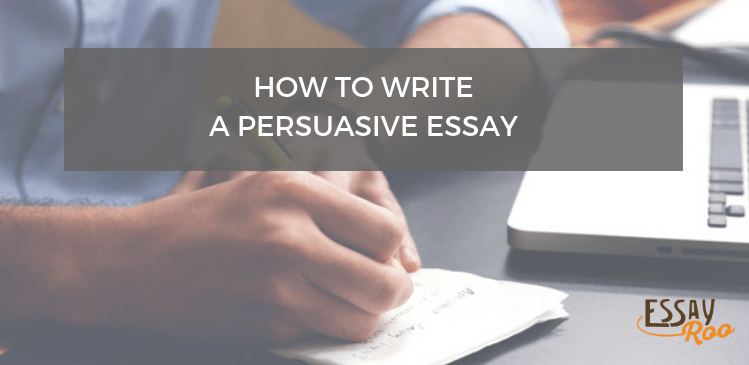
Table of contents:
- Structure and format
Persuasive vs. argumentative essay
- Persuasive essay introduction
- Persuasive essay body part
- Persuasive essay conclusion
Writing tips
A persuasive essay is an important tool in an Australian student’s repertoire. It will be useful not only for your assignments, but sets a good foundation for your life outside of high school, VET, or university as well, when you may have to negotiate with bosses, persuade customers to purchase your amazing goods, or even calm down an upset child.
But how do you write a 5 paragraph persuasive essay which will get you that coveted high grade? Your teacher or professor will be using a specific rubric to set your grades for these kinds of assignments. Let’s take a look.
Persuasive essay structure and format
The basic structural persuasive essay outline is, indeed, 5 paragraphs. It can be more, of course, and often will be, as you should try to keep each point supporting your main argument, or thesis , to one paragraph.
Typical structure for a persuasive essay:
- Introduction
- Body paragraphs (3 or more)
This is the fundamental layout: you will start with one paragraph as an introduction, then go on to write three or more paragraphs containing the body of your essay, then finally your conclusion, wrapping everything up with a neat little bow on top.
You may have also heard of argumentative essays and wonder what the difference is from a persuasive essay. Simply put, an argumentative essay must be based on cold hard facts which have been researched and are verifiable. It must be an essay devoted to the arguments in favour of a particular topic.
However, a persuasive essay has a wider range of resources available, as its only goal is to persuade the reader of the thesis. You can use appeals to emotion, social validation, stories and anecdotes, as well as of course facts and logic to persuade your audience. Think of the difference between a politician trying to persuade people to vote for him or her versus a scientist laying out the evidence they have gathered.
Part 1: Persuasive essay introduction
You begin with a hook , grabbing your audience’s attention from the start with your very first sentence. This can take the form of a relevant quote, or perhaps a personal anecdote, an interesting statistic or fact, an outrageous statement, or a question.
Having seized your reader’s attention, you will need to define who that reader should be. Make the definition of your intended audience clear, whether that’s your teacher, your fellow students, cat owners, fans of Star Wars, or Pokémon collectors.
The third and final part of the intro should consist of your thesis . This is a clear, strong, focused sentence that tells the reader the specific topic or purpose you’re writing about. It is your essay’s foundation, and everything else you will say in the essay rests on it. This is not the time to be wishy-washy or half-hearted; you must take an active, bold stance on the issue of your choice.
If you are not sure how to start persuasive essay, or feel you need prompts or samples of ideas, try looking at the news, whether local to your college or high school, or Aussie news in general. Use the techniques of making a checklist of questions or opinions you have about the world or about Australia, then proceed step by step through your worksheet. Do some research about your topics and find out which one inspires you the most.
Once you’ve made your thesis statement you can continue onward and write the body of your essay.
Part 2: Persuasive essay body paragraphs
Your essay’s body is the meat of the essay. It’s where you do the actual persuading to convince people to believe in your thesis. You should have at least three paragraphs’ worth of evidence for your argument, and if you do not, it’s likely that your thesis isn’t strong enough. If that’s the case, take a step back, and come up with ideas for a statement you feel strongly about, and take your topic from there.
Each separate point you make in defence of your thesis should be contained in a body paragraph of its own, and any facts, examples, stats, or quotes backing up that point included in the same paragraph. Take the time to fully examine each of your points and their meaning. You will also need to consider what someone who disagreed with your thesis might say in response and try to counteract their argument before they can make it.
If appropriate, it may well be worth conceding to, or finding common ground with, any opponents. Anticipating their arguments and agreeing where necessary is a show of strength and confidence on your part. On the other hand, a failure to address an obvious opposing argument looks weak and unprepared, so make sure you’ve got all your ducks in a row.
Part 3: Persuasive essay conclusion
Once you reach the conclusion of your essay, your audience should be at the point of agreeing with you. The conclusion is just to reinforce what they have already been told and leave them with a call to action so that they will carry on with their day in a somewhat different frame of mind than they were when they started reading your essay.
Begin your conclusion by restating your thesis, then your main points. This is important to keep the information fresh in their minds. Once you’ve done this, then close with the idea of the action you want them to take, whether that’s a question for them to think about, a prediction of what might happen in the future, or a literal call for them to do something, like donate to a particular charity or sign a petition.
Now you know how to write a persuasive essay, and are hopefully on your way to great grades. If you still need help, see the writing tips below.
- As you move between points on towards the inevitable conclusion, use transition words and phrases as sentence starters, as they serve as cues for the audience that the argument is moving onward. Some examples of these words are: however , therefore , consequently , in fact , on the other hand , instead , thus , and still .
- If you are truly stuck, why not consider if you can buy persuasive essay online? Another writer’s pages or papers can provide you with a template for the structure or serve as a generator for your own thoughts.
- Persuasive essay writing is like planning a house somewhere in Australia. Think of your thesis as the roof of a building, and each of your supporting points as pillars underneath it. Like a real roof, it has to have at least three pillars to stay up, and the more, the sturdier the whole argument is.
- The titles of your persuasive essays should be a pared-down version of your thesis statements.
- Essay samples
- Infographics
- Essay writing
- Crafting a Powerful Essay on Political Polarization
- Oral Health Overview Essay: Preventing Tooth Decay in Australia
- How to Write a Good Expository Essay About Macbeth
- How to Write An Expository Essay About Love
- How to Write a Great Expository Essay About Life
Price per page
Total price:
Limitless Amendments
Bibliography
Plagiarism Report
Get all these features for A$93.12 FREE
If you don't know exactly what type of paper you need or can't find the necessary one on the website - don't worry! Contact us and we'll help you out!
- Terms of Use
- Money Back Guarantee
- Cookie Policy
- Privacy Policy
- Write My Essay
- Custom Essay
- Essay Writer
- Do My Essay
- Type My Essay
- Pay For Essay
- Cheap Essay
- Write My Paper
- Write My Assignment
- Assignment Writer
- Buy Assignment
- Assignment Help
- Do My Assignment
- Nursing Essay Writing Service
- Management Essay
- Business Essay
- Law Essay Writing Service
- Education Essay Service
- Marketing Essay
- Accounting Essay
- Sociology Essay
Before continuing to use our service please make sure you got acquainted with our Cookie Policy and accepted it by clicking OK

Choose Your Test
Sat / act prep online guides and tips, 113 perfect persuasive essay topics for any assignment.
General Education

Do you need to write a persuasive essay but aren’t sure what topic to focus on? Were you thrilled when your teacher said you could write about whatever you wanted but are now overwhelmed by the possibilities? We’re here to help!
Read on for a list of 113 top-notch persuasive essay topics, organized into ten categories. To help get you started, we also discuss what a persuasive essay is, how to choose a great topic, and what tips to keep in mind as you write your persuasive essay.
What Is a Persuasive Essay?
In a persuasive essay, you attempt to convince readers to agree with your point of view on an argument. For example, an essay analyzing changes in Italian art during the Renaissance wouldn’t be a persuasive essay, because there’s no argument, but an essay where you argue that Italian art reached its peak during the Renaissance would be a persuasive essay because you’re trying to get your audience to agree with your viewpoint.
Persuasive and argumentative essays both try to convince readers to agree with the author, but the two essay types have key differences. Argumentative essays show a more balanced view of the issue and discuss both sides. Persuasive essays focus more heavily on the side the author agrees with. They also often include more of the author’s opinion than argumentative essays, which tend to use only facts and data to support their argument.
All persuasive essays have the following:
- Introduction: Introduces the topic, explains why it’s important, and ends with the thesis.
- Thesis: A sentence that sums up what the essay be discussing and what your stance on the issue is.
- Reasons you believe your side of the argument: Why do you support the side you do? Typically each main point will have its own body paragraph.
- Evidence supporting your argument: Facts or examples to back up your main points. Even though your opinion is allowed in persuasive essays more than most other essays, having concrete examples will make a stronger argument than relying on your opinion alone.
- Conclusion: Restatement of thesis, summary of main points, and a recap of why the issue is important.
What Makes a Good Persuasive Essay Topic?
Theoretically, you could write a persuasive essay about any subject under the sun, but that doesn’t necessarily mean you should. Certain topics are easier to write a strong persuasive essay on, and below are tips to follow when deciding what you should write about.
It’s a Topic You Care About
Obviously, it’s possible to write an essay about a topic you find completely boring. You’ve probably done it! However, if possible, it’s always better to choose a topic that you care about and are interested in. When this is the case, you’ll find doing the research more enjoyable, writing the essay easier, and your writing will likely be better because you’ll be more passionate about and informed on the topic.
You Have Enough Evidence to Support Your Argument
Just being passionate about a subject isn’t enough to make it a good persuasive essay topic, though. You need to make sure your argument is complex enough to have at least two potential sides to root for, and you need to be able to back up your side with evidence and examples. Even though persuasive essays allow your opinion to feature more than many other essays, you still need concrete evidence to back up your claims, or you’ll end up with a weak essay.
For example, you may passionately believe that mint chocolate chip ice cream is the best ice cream flavor (I agree!), but could you really write an entire essay on this? What would be your reasons for believing mint chocolate chip is the best (besides the fact that it’s delicious)? How would you support your belief? Have enough studies been done on preferred ice cream flavors to support an entire essay? When choosing a persuasive essay idea, you want to find the right balance between something you care about (so you can write well on it) and something the rest of the world cares about (so you can reference evidence to strengthen your position).
It’s a Manageable Topic
Bigger isn’t always better, especially with essay topics. While it may seem like a great idea to choose a huge, complex topic to write about, you’ll likely struggle to sift through all the information and different sides of the issue and winnow them down to one streamlined essay. For example, choosing to write an essay about how WWII impacted American life more than WWI wouldn’t be a great idea because you’d need to analyze all the impacts of both the wars in numerous areas of American life. It’d be a huge undertaking. A better idea would be to choose one impact on American life the wars had (such as changes in female employment) and focus on that. Doing so will make researching and writing your persuasive essay much more feasible.

List of 113 Good Persuasive Essay Topics
Below are over 100 persuasive essay ideas, organized into ten categories. When you find an idea that piques your interest, you’ll choose one side of it to argue for in your essay. For example, if you choose the topic, “should fracking be legal?” you’d decide whether you believe fracking should be legal or illegal, then you’d write an essay arguing all the reasons why your audience should agree with you.
Arts/Culture
- Should students be required to learn an instrument in school?
- Did the end of Game of Thrones fit with the rest of the series?
- Can music be an effective way to treat mental illness?
- With e-readers so popular, have libraries become obsolete?
- Are the Harry Potter books more popular than they deserve to be?
- Should music with offensive language come with a warning label?
- What’s the best way for museums to get more people to visit?
- Should students be able to substitute an art or music class for a PE class in school?
- Are the Kardashians good or bad role models for young people?
- Should people in higher income brackets pay more taxes?
- Should all high school students be required to take a class on financial literacy?
- Is it possible to achieve the American dream, or is it only a myth?
- Is it better to spend a summer as an unpaid intern at a prestigious company or as a paid worker at a local store/restaurant?
- Should the United States impose more or fewer tariffs?
- Should college graduates have their student loans forgiven?
- Should restaurants eliminate tipping and raise staff wages instead?
- Should students learn cursive writing in school?
- Which is more important: PE class or music class?
- Is it better to have year-round school with shorter breaks throughout the year?
- Should class rank be abolished in schools?
- Should students be taught sex education in school?
- Should students be able to attend public universities for free?
- What’s the most effective way to change the behavior of school bullies?
- Are the SAT and ACT accurate ways to measure intelligence?
- Should students be able to learn sign language instead of a foreign language?
- Do the benefits of Greek life at colleges outweigh the negatives?
- Does doing homework actually help students learn more?
- Why do students in many other countries score higher than American students on math exams?
- Should parents/teachers be able to ban certain books from schools?
- What’s the best way to reduce cheating in school?
- Should colleges take a student’s race into account when making admissions decisions?
- Should there be limits to free speech?
- Should students be required to perform community service to graduate high school?
- Should convicted felons who have completed their sentence be allowed to vote?
- Should gun ownership be more tightly regulated?
- Should recycling be made mandatory?
- Should employers be required to offer paid leave to new parents?
- Are there any circumstances where torture should be allowed?
- Should children under the age of 18 be able to get plastic surgery for cosmetic reasons?
- Should white supremacy groups be allowed to hold rallies in public places?
- Does making abortion illegal make women more or less safe?
- Does foreign aid actually help developing countries?
- Are there times a person’s freedom of speech should be curtailed?
- Should people over a certain age not be allowed to adopt children?
Government/Politics
- Should the minimum voting age be raised/lowered/kept the same?
- Should Puerto Rico be granted statehood?
- Should the United States build a border wall with Mexico?
- Who should be the next person printed on American banknotes?
- Should the United States’ military budget be reduced?
- Did China’s one child policy have overall positive or negative impacts on the country?
- Should DREAMers be granted US citizenship?
- Is national security more important than individual privacy?
- What responsibility does the government have to help homeless people?
- Should the electoral college be abolished?
- Should the US increase or decrease the number of refugees it allows in each year?
- Should privately-run prisons be abolished?
- Who was the most/least effective US president?
- Will Brexit end up helping or harming the UK?

- What’s the best way to reduce the spread of Ebola?
- Is the Keto diet a safe and effective way to lose weight?
- Should the FDA regulate vitamins and supplements more strictly?
- Should public schools require all students who attend to be vaccinated?
- Is eating genetically modified food safe?
- What’s the best way to make health insurance more affordable?
- What’s the best way to lower the teen pregnancy rate?
- Should recreational marijuana be legalized nationwide?
- Should birth control pills be available without a prescription?
- Should pregnant women be forbidden from buying cigarettes and alcohol?
- Why has anxiety increased in adolescents?
- Are low-carb or low-fat diets more effective for weight loss?
- What caused the destruction of the USS Maine?
- Was King Arthur a mythical legend or actual Dark Ages king?
- Was the US justified in dropping atomic bombs during WWII?
- What was the primary cause of the Rwandan genocide?
- What happened to the settlers of the Roanoke colony?
- Was disagreement over slavery the primary cause of the US Civil War?
- What has caused the numerous disappearances in the Bermuda triangle?
- Should nuclear power be banned?
- Is scientific testing on animals necessary?
- Do zoos help or harm animals?
- Should scientists be allowed to clone humans?
- Should animals in circuses be banned?
- Should fracking be legal?
- Should people be allowed to keep exotic animals as pets?
- What’s the best way to reduce illegal poaching in Africa?
- What is the best way to reduce the impact of global warming?
- Should euthanasia be legalized?
- Is there legitimate evidence of extraterrestrial life?
- Should people be banned from owning aggressive dog breeds?
- Should the United States devote more money towards space exploration?
- Should the government subsidize renewable forms of energy?
- Is solar energy worth the cost?
- Should stem cells be used in medicine?
- Is it right for the US to leave the Paris Climate Agreement?
- Should athletes who fail a drug test receive a lifetime ban from the sport?
- Should college athletes receive a salary?
- Should the NFL do more to prevent concussions in players?
- Do PE classes help students stay in shape?
- Should horse racing be banned?
- Should cheerleading be considered a sport?
- Should children younger than 18 be allowed to play tackle football?
- Are the costs of hosting an Olympic Games worth it?
- Can online schools be as effective as traditional schools?
- Do violent video games encourage players to be violent in real life?
- Should facial recognition technology be banned?
- Does excessive social media use lead to depression/anxiety?
- Has the rise of translation technology made knowing multiple languages obsolete?
- Was Steve Jobs a visionary or just a great marketer?
- Should social media be banned for children younger than a certain age?
- Which 21st-century invention has had the largest impact on society?
- Are ride-sharing companies like Uber and Lyft good or bad for society?
- Should Facebook have done more to protect the privacy of its users?
- Will technology end up increasing or decreasing inequality worldwide?

Tips for Writing a Strong Persuasive Essay
After you’ve chosen the perfect topic for your persuasive essay, your work isn’t over. Follow the three tips below to create a top-notch essay.
Do Your Research
Your argument will fall apart if you don’t fully understand the issue you’re discussing or you overlook an important piece of it. Readers won’t be convinced by someone who doesn’t know the subject, and you likely won’t persuade any of them to begin supporting your viewpoint. Before you begin writing a single word of your essay, research your topic thoroughly. Study different sources, learn about the different sides of the argument, ask anyone who’s an expert on the topic what their opinion is, etc. You might be tempted to start writing right away, but by doing your research, you’ll make the writing process much easier when the time comes.
Make Your Thesis Perfect
Your thesis is the most important sentence in your persuasive essay. Just by reading that single sentence, your audience should know exactly what topic you’ll be discussing and where you stand on the issue. You want your thesis to be crystal clear and to accurately set up the rest of your essay. Asking classmates or your teacher to look it over before you begin writing the rest of your essay can be a big help if you’re not entirely confident in your thesis.
Consider the Other Side
You’ll spend most of your essay focusing on your side of the argument since that’s what you want readers to come away believing. However, don’t think that means you can ignore other sides of the issue. In your essay, be sure to discuss the other side’s argument, as well as why you believe this view is weak or untrue. Researching all the different viewpoints and including them in your essay will increase the quality of your writing by making your essay more complete and nuanced.
Summary: Persuasive Essay Ideas
Good persuasive essay topics can be difficult to come up with, but in this guide we’ve created a list of 113 excellent essay topics for you to browse. The best persuasive essay ideas will be those that you are interested in, have enough evidence to support your argument, and aren’t too complicated to be summarized in an essay.
After you’ve chosen your essay topic, keep these three tips in mind when you begin writing:
- Do your research
- Make your thesis perfect
- Consider the other side
What's Next?
Need ideas for a research paper topic as well? Our guide to research paper topics has over 100 topics in ten categories so you can be sure to find the perfect topic for you.
Thinking about taking an AP English class? Read our guide on AP English classes to learn whether you should take AP English Language or AP English Literature (or both!)
Deciding between the SAT or ACT? Find out for sure which you will do the best on . Also read a detailed comparison between the two tests .

Christine graduated from Michigan State University with degrees in Environmental Biology and Geography and received her Master's from Duke University. In high school she scored in the 99th percentile on the SAT and was named a National Merit Finalist. She has taught English and biology in several countries.
Student and Parent Forum
Our new student and parent forum, at ExpertHub.PrepScholar.com , allow you to interact with your peers and the PrepScholar staff. See how other students and parents are navigating high school, college, and the college admissions process. Ask questions; get answers.

Ask a Question Below
Have any questions about this article or other topics? Ask below and we'll reply!
Improve With Our Famous Guides
- For All Students
The 5 Strategies You Must Be Using to Improve 160+ SAT Points
How to Get a Perfect 1600, by a Perfect Scorer
Series: How to Get 800 on Each SAT Section:
Score 800 on SAT Math
Score 800 on SAT Reading
Score 800 on SAT Writing
Series: How to Get to 600 on Each SAT Section:
Score 600 on SAT Math
Score 600 on SAT Reading
Score 600 on SAT Writing
Free Complete Official SAT Practice Tests
What SAT Target Score Should You Be Aiming For?
15 Strategies to Improve Your SAT Essay
The 5 Strategies You Must Be Using to Improve 4+ ACT Points
How to Get a Perfect 36 ACT, by a Perfect Scorer
Series: How to Get 36 on Each ACT Section:
36 on ACT English
36 on ACT Math
36 on ACT Reading
36 on ACT Science
Series: How to Get to 24 on Each ACT Section:
24 on ACT English
24 on ACT Math
24 on ACT Reading
24 on ACT Science
What ACT target score should you be aiming for?
ACT Vocabulary You Must Know
ACT Writing: 15 Tips to Raise Your Essay Score
How to Get Into Harvard and the Ivy League
How to Get a Perfect 4.0 GPA
How to Write an Amazing College Essay
What Exactly Are Colleges Looking For?
Is the ACT easier than the SAT? A Comprehensive Guide
Should you retake your SAT or ACT?
When should you take the SAT or ACT?
Stay Informed
Get the latest articles and test prep tips!
Looking for Graduate School Test Prep?
Check out our top-rated graduate blogs here:
GRE Online Prep Blog
GMAT Online Prep Blog
TOEFL Online Prep Blog
Holly R. "I am absolutely overjoyed and cannot thank you enough for helping me!”

23 Persuasive writing Topics for High School students
Persuasive Writing Topics for High School Students
Writing a persuasive essay can be difficult for teachers and students if you don’t have a great idea to help get those creative juices flowing. These prompts cover a range of issues and topics that are pertinent to middle school and high school students and can be easily adapted to work with a topic you have been teaching in your own class.
Students really enjoy the opportunity to try and change the world in which they live, and hopefully, these prompts might be a great starting point.
Remember that if you are looking for more excellent free resources and structured guides to teaching all aspects of English, especially writing be sure to visit literacyideas.com and check our vast collection of prompts here.
Year Long Inference Based Writing Activities

Tap into the power of imagery in your classroom to get your students to master INFERENCE as AUTHORS and CRITICAL THINKERS .
This YEAR-LONG 500+ PAGE unit is packed with robust opportunities for your students to develop the critical skill of inference through fun imagery, powerful thinking tools, and graphic organizers.
TOP PERSUASIVE WRITING TOPICS
- Some parents give children a weekly or monthly allowance regardless of their behavior because they believe an allowance teaches children to be financially responsible. Other parents only give children an allowance as a reward for completing chores or when they have behaved properly. Explain what you think parents should do and why.
- Many schools now require teenagers to spend a certain number of hours each term doing volunteer work or community service. Some people believe this is an excellent idea as it promotes good citizenship and cultivates compassion. Others feel that forced volunteerism is not volunteering at all. How do you feel about this issue? Use specific reasons and examples to support your position.
- Some parts of the world allow people to get a driver’s license at age sixteen. Many feel this age is much too young for the responsibility that comes with driving a car and that teenagers should not be allowed to drive until the age of 18. In your opinion, at what age should people be allowed to drive, and why?
- What is your all-time favorite book or movie and why? Write an essay persuading readers to watch this film or read this book.
- Have you ever made a life changing action that has had a positive effect on you or the lives of others? Write an essay that convinces readers to make a change for the better.
- You have been asked to write a letter that would convince a organizers of a major event to be hosted in your hometown. Write an essay that convinces these delegates that your town would be great host.
- Top professional athletes often have salaries and bonuses in the tens of millions of dollars. Do you think these athletes deserve this type of income? Why or why not? Explain your position and use specific reasons and examples.
- Humans have always wondered about the possibility of life on other planets in the universe. Do you believe extraterrestrial life exists? Write an essay persuading others to share your point of view .
- If someone discovered the ‘Elixir of life’ that would enable us to live forever, would it be a blessing or a curse? Use specific reasons and examples to support your answer.
- If you have you ever traveled to a place that you found very meaningful and rewarding? Write an essay that persuades others to visit this important place.
- Nearly all private schools require students to wear uniforms. Should public school students wear uniforms too? Argue for or against school uniforms for public school students. Use specific reasons and examples to support your position.
- You are to select one item from the twenty-first century to place in a time capsule for future generations, what would you choose? Use specific reasons and examples to support your choice, explaining both the item’s significance and the reasons why it embodies the culture of the early twenty-first century.
- What would improve your town or city? Write an essay convincing officials to make a change that would improve your neighborhood.
- Some studies have shown students often perform better on exams if music is played softly in the background. However, some students may find the music distracting. Should schools play classical music during exams and/or allow students to listen to headphones whilst working? Take a position and explain your answer.
- Should parents be a child’s disciplinarian, or their best friend?
- Take a position and explain your answer using specific reasons and examples.
- Millions of people visit zoos around the world. But some people believe that zoos are inhumane and that animals should not be kept in captivity. Do you agree? Why or why not? Use specific reasons and examples to support your position.
- In most countries people pay taxes based upon how much they earn: the higher their income, the higher the percentage of that income they must pay in taxes. Many people argue that a flat tax, in which everyone pays the same rate regardless of income, would be a more equitable and desirable tax system. Which of these two tax systems do you think is best, and why? Use specific reasons and examples to support your answer.
- Is it wise to devote time and money to building a space station on the moon or Mars? Why or why not? Explain your answer.
- An ancient Greek proverb states, “All things good to know are difficult to learn.” Do you agree? Why or why not? Use specific reasons and examples to explain your answer.
- Imagine that you know someone who is unfamiliar with computers and has never been on the Internet. Write an essay convincing this relative to get a computer and get online.
- Imagine that you have made it to the final round of interviews for your dream job. Convince your prospective employers that you are the one who most deserves the position.
- Is there something that you believe is truly worth fighting for? Write an essay persuading others that this cause is worth a fight.
If you have any other great ideas for persuasive prompts please post them in the comments section below.
A COMPLETE TEACHING UNIT ON PERSUASIVE WRITING SKILLS
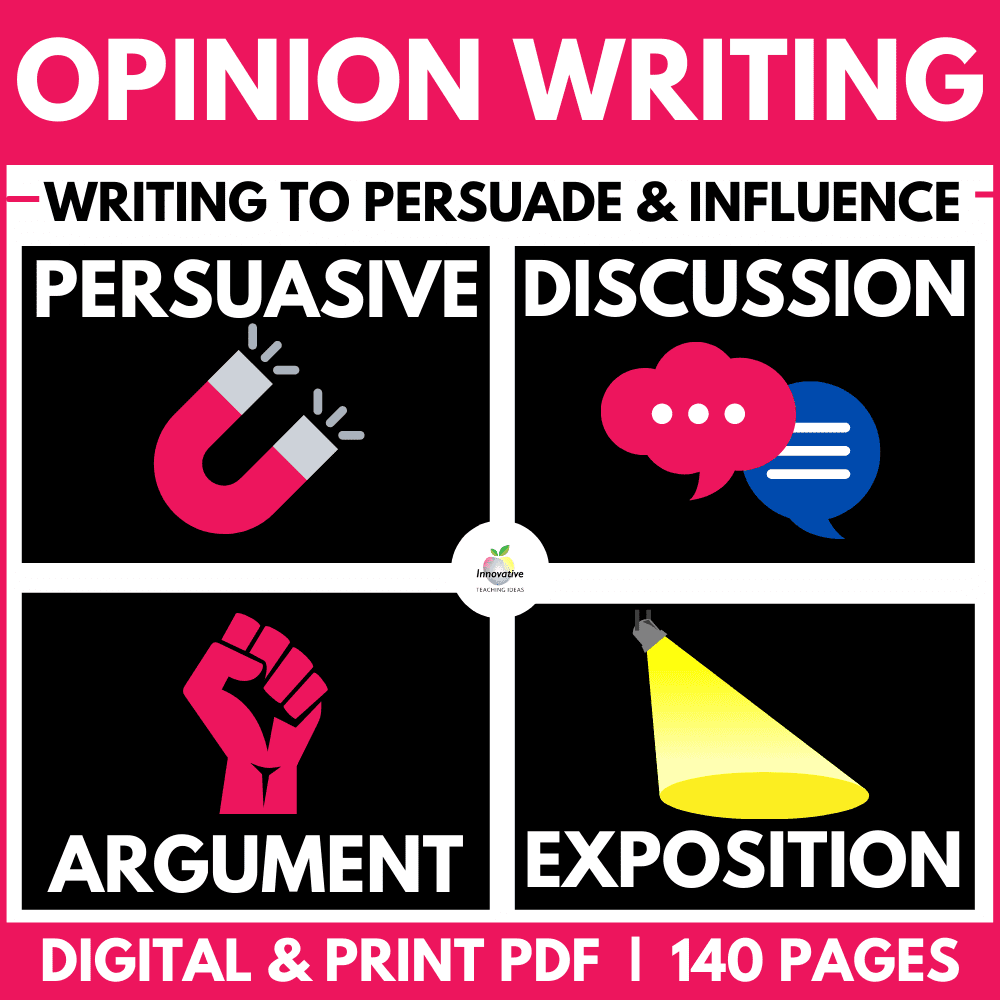
Teach your students to produce writing that PERSUADES and INFLUENCES thinking with this HUGE writing guide bundle covering: ⭐ Persuasive Texts / Essays ⭐ Expository Essays⭐ Argumentative Essays⭐ Discussions.
A complete 140 PAGE unit of work on persuasive texts for teachers and students. No preparation is required.

High School Essay
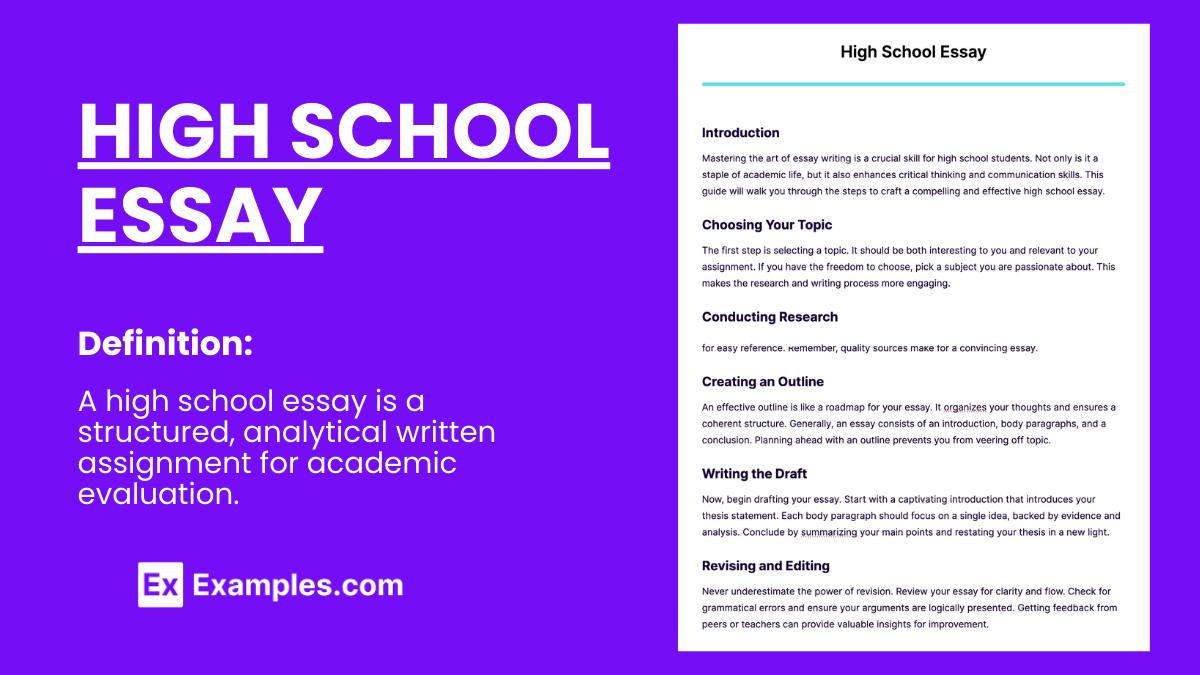
Navigating the complexities of High School Essay writing can be a challenging yet rewarding experience. Our guide, infused with diverse essay examples , is designed to simplify this journey for students. High school essays are a crucial part of academic development, allowing students to express their thoughts, arguments, and creativity. With our examples, students learn to structure their essays effectively, develop strong thesis statements, and convey their ideas with clarity and confidence, paving the way for academic success.
What Is a High School Essay? A high school essay is anything that falls between a literary piece that teachers would ask their students to write. It could be anything like an expository essay , informative essay , or a descriptive essay . High school essay is just a broad term that is used to describe anything that high school student writes, probably in subjects like English Grammar or Literature.
It is a good way to practice every student’s writing skills in writing which they might find useful when they reach college. Others might even be inspired to continue writing and take courses that are related to it.
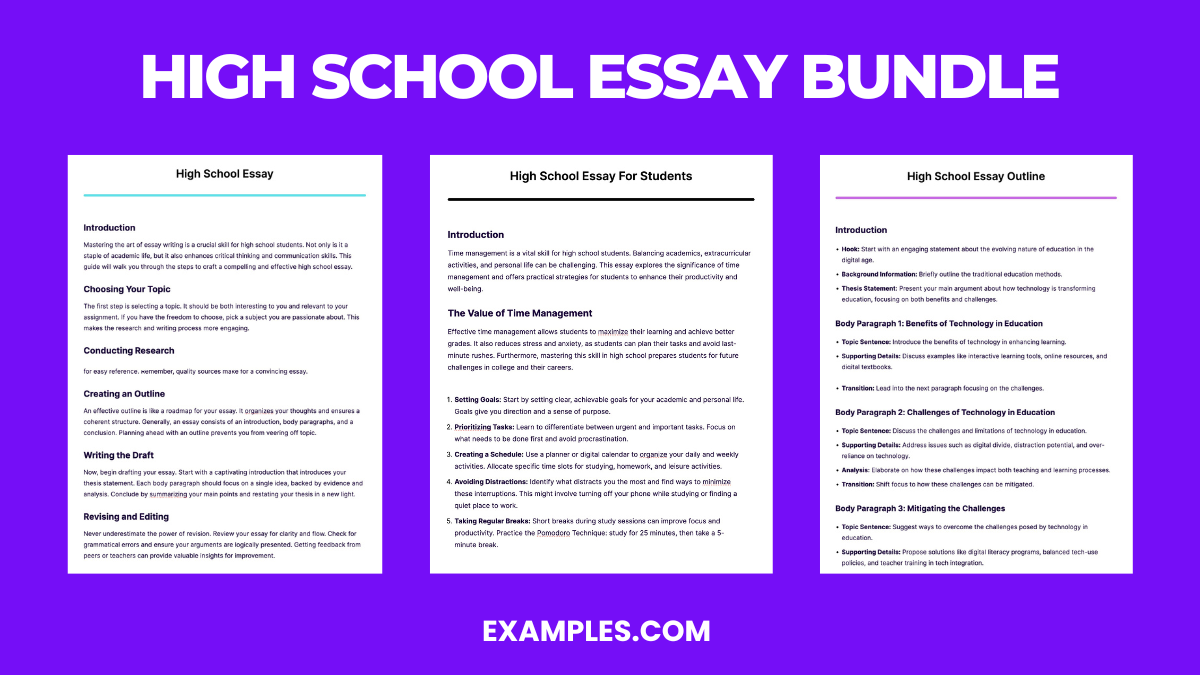
Download High School Essay Bundle
When you are in high school, it is definite that you are expected to do some write-ups and projects which require pen and paper. Yes. You heard that right. Your teachers are going to let you write a lot of things starting from short stories to other things like expository essays. However, do not be intimidated nor fear the things that I have just said. It is but a normal part of being a student to write things. Well, take it from me. As far as I can recall, I may have written about a hundred essays during my entire high school years or maybe more. You may also see what are the parts of an essay?
High School Essay Format
1. introduction.
Hook: Start with an engaging sentence to capture the reader’s interest. This could be a question, a quote, a surprising fact, or a bold statement related to your topic. Background Information: Provide some background information on your topic to help readers understand the context of your essay. Thesis Statement: End the introduction with a clear thesis statement that outlines your main argument or point of view. This statement guides the direction of your entire essay.
2. Body Paragraphs
Topic Sentence: Start each body paragraph with a topic sentence that introduces the main idea of the paragraph, supporting your thesis statement. Supporting Details: Include evidence, examples, facts, and quotes to support the main idea of each paragraph. Make sure to explain how these details relate to your topic sentence and thesis statement. Analysis: Provide your analysis or interpretation of the evidence and how it supports your argument. Be clear and concise in explaining your reasoning. Transition: Use transition words or phrases to smoothly move from one idea to the next, maintaining the flow of your essay.
3. Conclusion
Summary: Begin your conclusion by restating your thesis in a new way, summarizing the main points of your body paragraphs without introducing new information. Final Thoughts: End your essay with a strong closing statement. This could be a reflection on the significance of your argument, a call to action, or a rhetorical question to leave the reader thinking.

Example of High School Essay
Community service plays a pivotal role in fostering empathy, building character, and enhancing societal well-being. It offers a platform for young individuals to contribute positively to society while gaining valuable life experiences. This essay explores the significance of community service and its impact on both individuals and communities. Introduction Community service, an altruistic activity performed for the betterment of society, is a cornerstone for personal growth and societal improvement. It not only addresses societal needs but also cultivates essential virtues in volunteers. Through community service, high school students can develop a sense of responsibility, a commitment to altruism, and an understanding of their role in the community. Personal Development Firstly, community service significantly contributes to personal development. Volunteering helps students acquire new skills, such as teamwork, communication, and problem-solving. For instance, organizing a local food drive can teach students project management skills and the importance of collaboration. Moreover, community service provides insights into one’s passions and career interests, guiding them towards fulfilling future endeavors. Social Impact Secondly, the social impact of community service cannot be overstated. Activities like tutoring underprivileged children or participating in environmental clean-ups address critical societal issues directly. These actions not only bring about immediate positive changes but also inspire a ripple effect, encouraging a culture of volunteerism within the community. The collective effort of volunteers can transform neighborhoods, making them more supportive and resilient against challenges. Building Empathy and Understanding Furthermore, community service is instrumental in building empathy and understanding. Engaging with diverse groups and working towards a common goal fosters a sense of solidarity and compassion among volunteers. For example, spending time at a senior center can bridge the generational gap, enriching the lives of both the elderly and the volunteers. These experiences teach students the value of empathy, enriching their emotional intelligence and social awareness. In conclusion, community service is a vital component of societal development and personal growth. It offers a unique opportunity for students to engage with their communities, learn valuable life skills, and develop empathy. Schools and parents should encourage students to participate in community service, highlighting its benefits not only to the community but also in shaping responsible, caring, and informed citizens. As we look towards building a better future, the role of community service in education cannot be overlooked; it is an investment in our collective well-being and the development of the next generation.
Essay Topics for High School with Samples to Edit & Download
- Should schools have dress codes?
- Sex education in middle school
- Should homework be abolished?
- College education costs
- How does technology affect productivity?
- Is climate change reversible?
- Is social media helpful or harmful?
- Climate change is caused by humans
- Effects of social media on youth
- Are men and women treated equally?
- Are professional athletes overpaid?
- Changes over the past decade
- Guns should be more strictly regulated
- My favorite childhood memory
- Religion in school
- Should we stop giving final exams?
- Video game addiction
- Violence in media content
High School Essay Examples & Templates
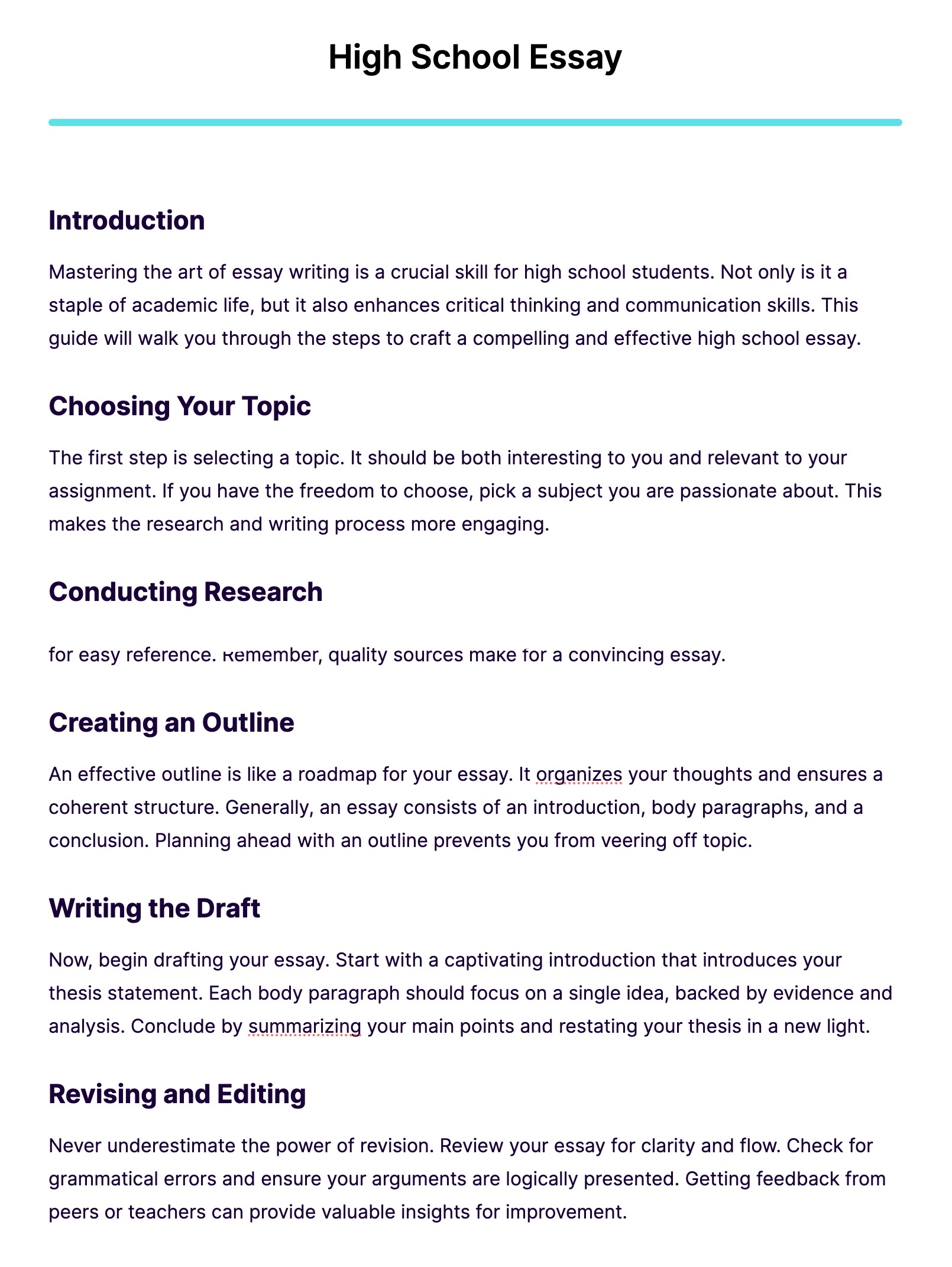
Free Download
High School Essay For Students
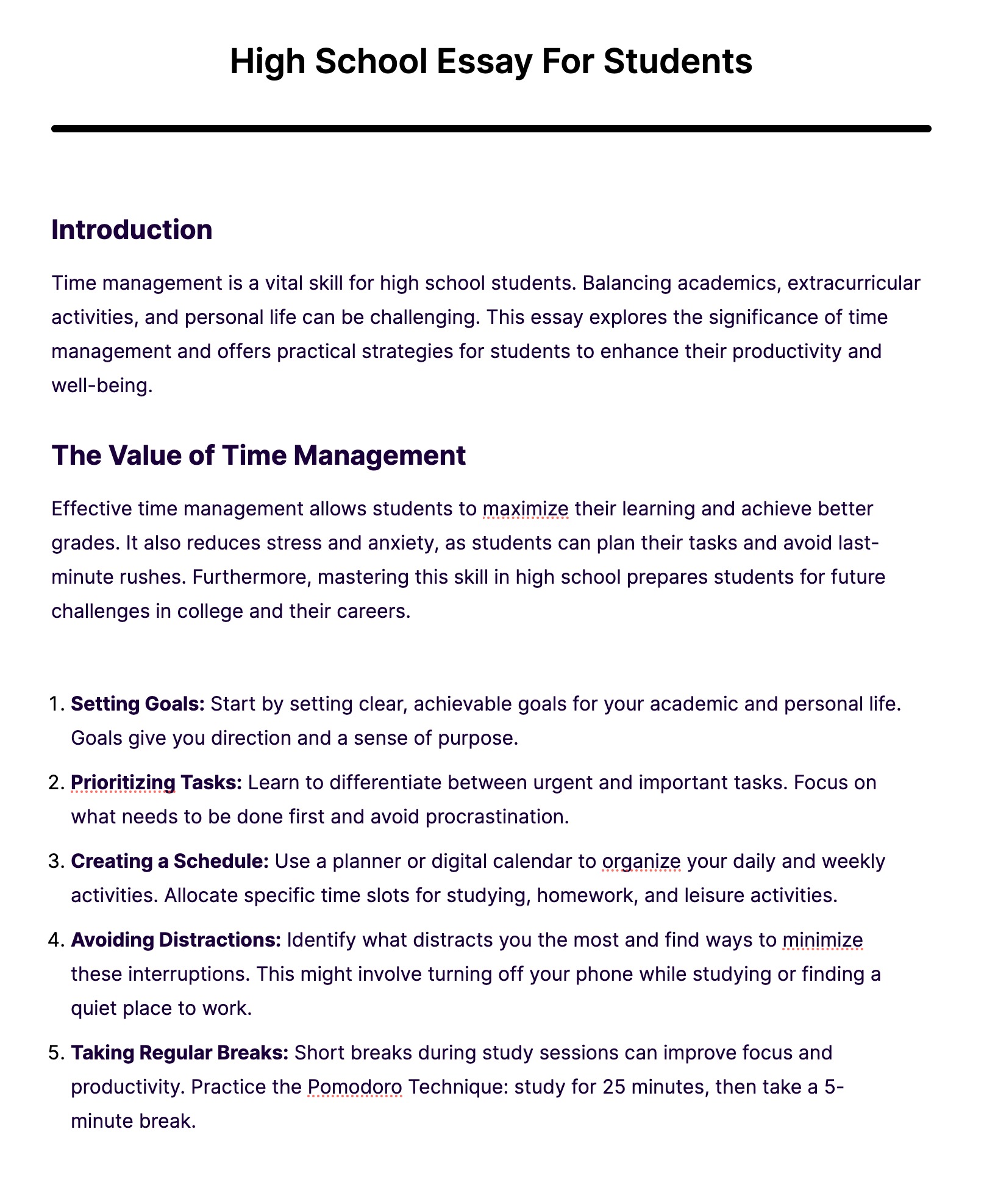
High School Essay Outline
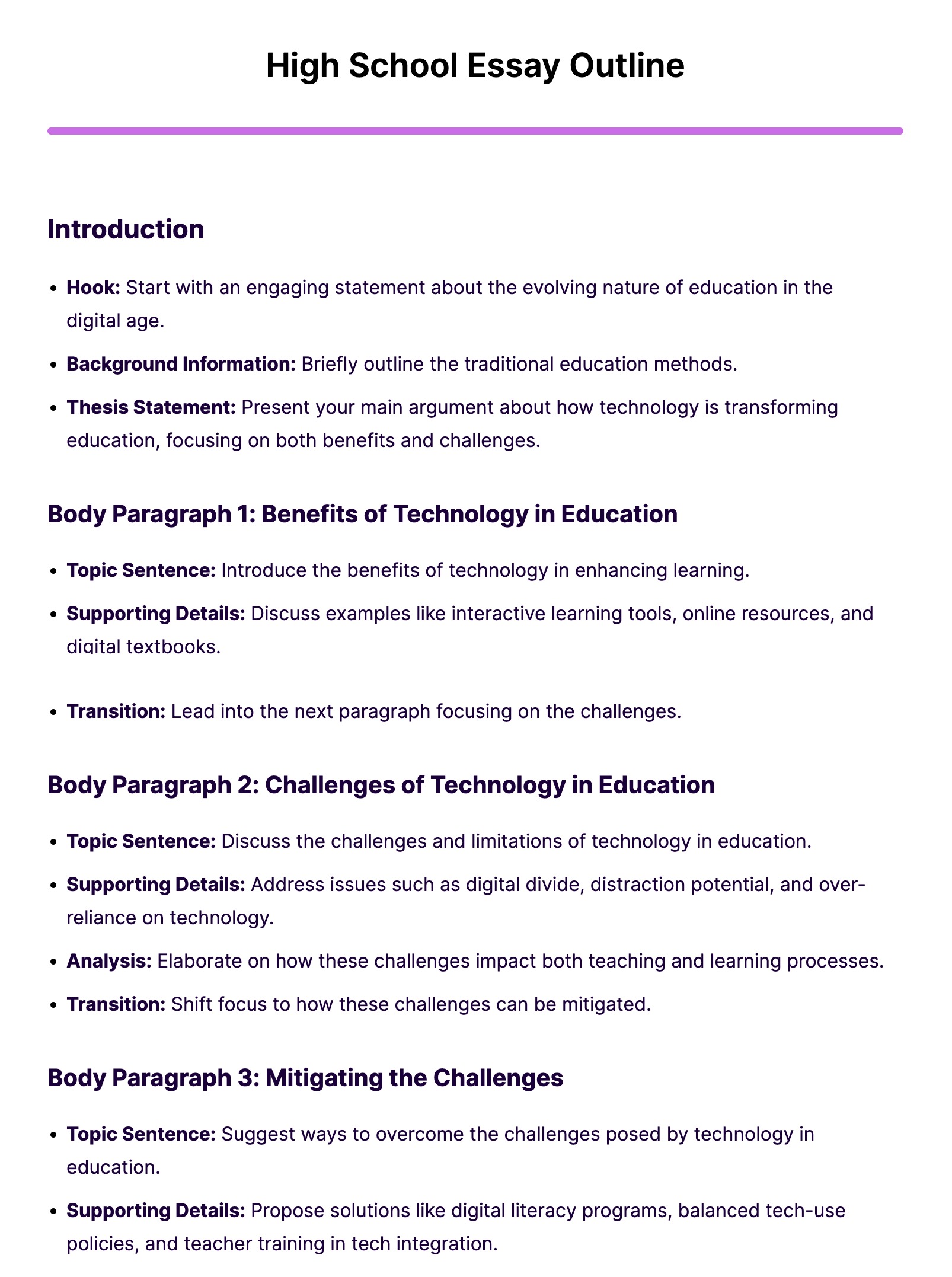
High School Essay Example
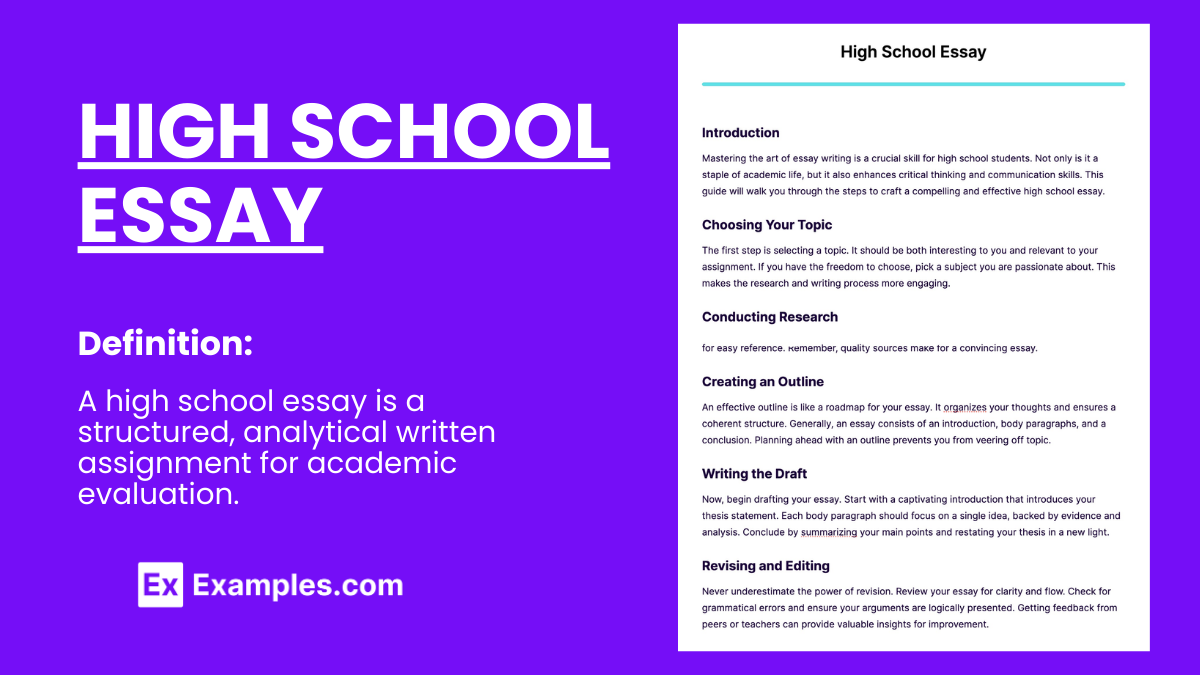
High School Self Introduction Essay Template
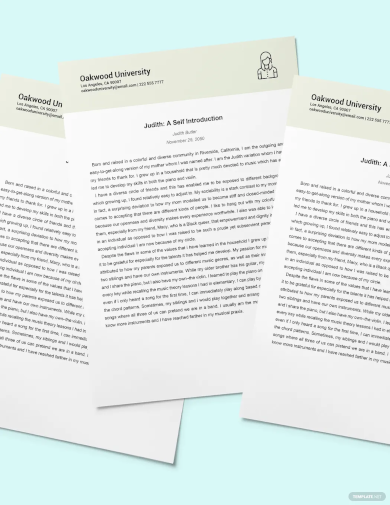
High School Student Essay

englishdaily626.com
Reflective High School
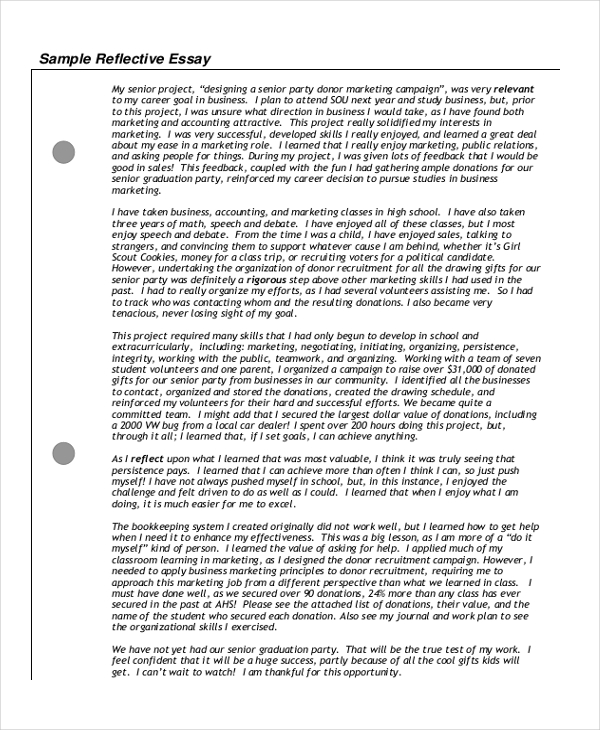
oregoncis.uoregon.edu
Argumentative Essays for High School
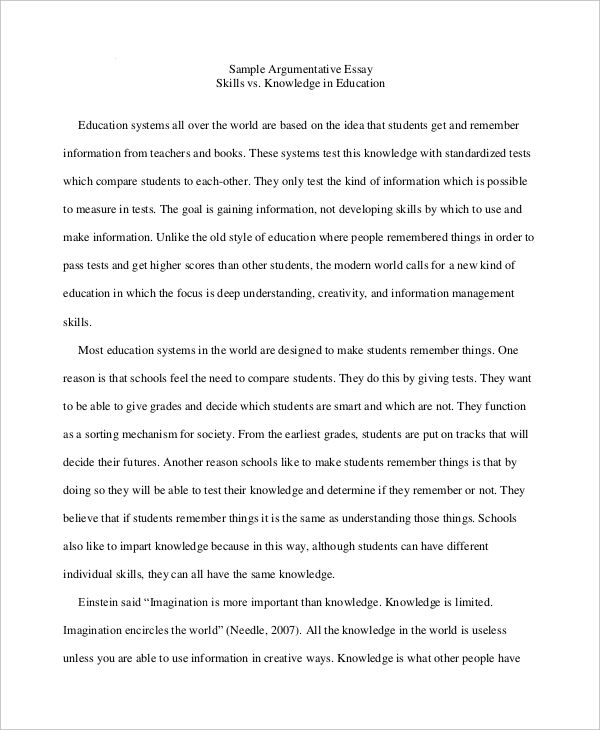
Informative Essays for High School
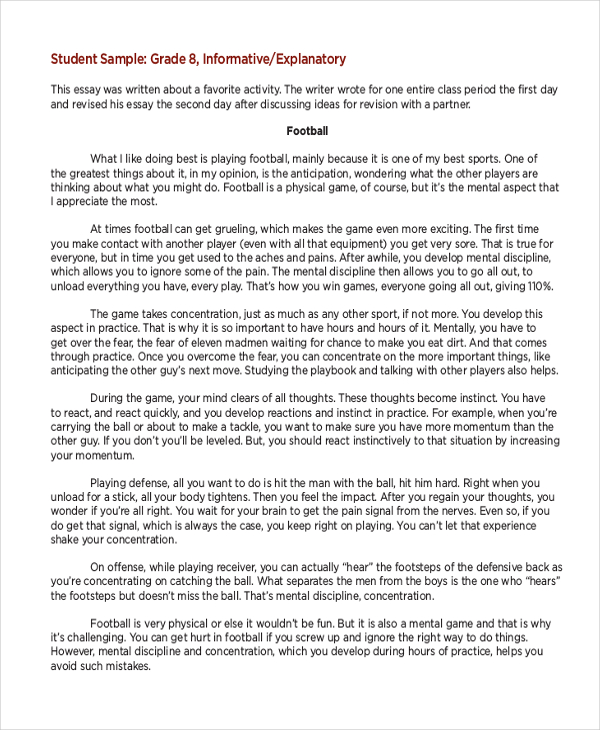
High School Persuasive
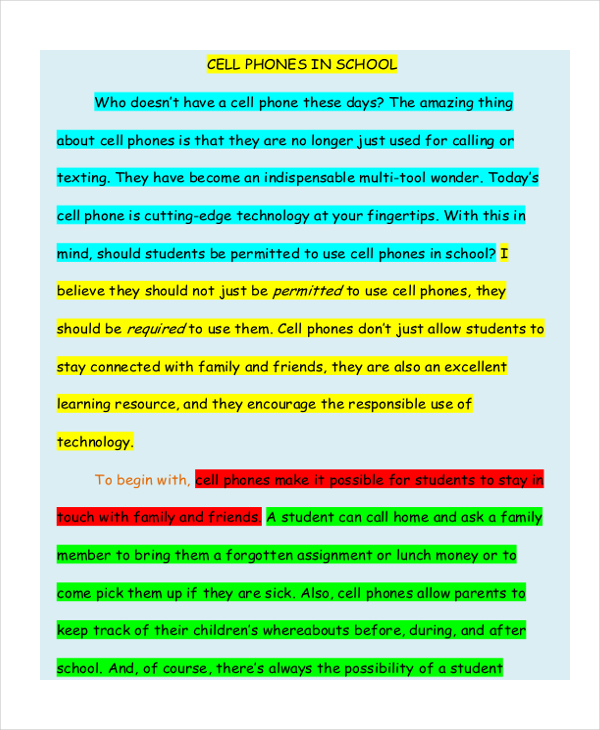
writecook.com
Narrative Essays
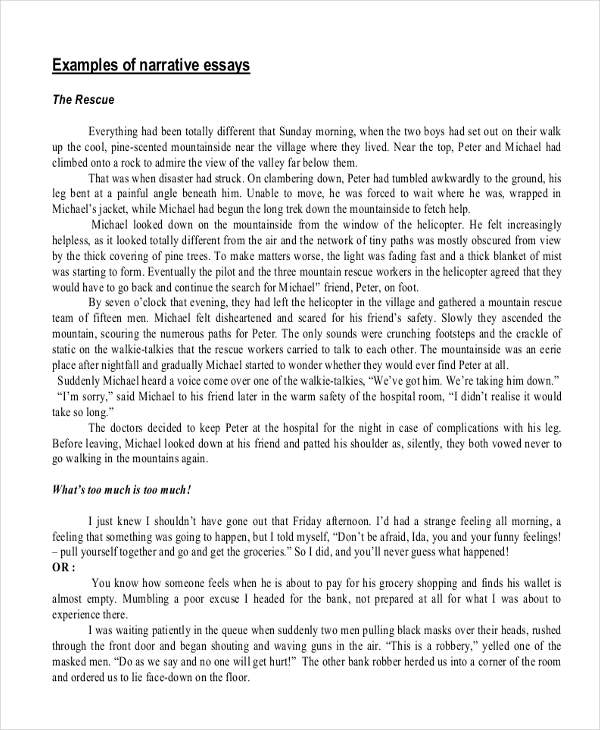
Scholarship Essays

High School Application
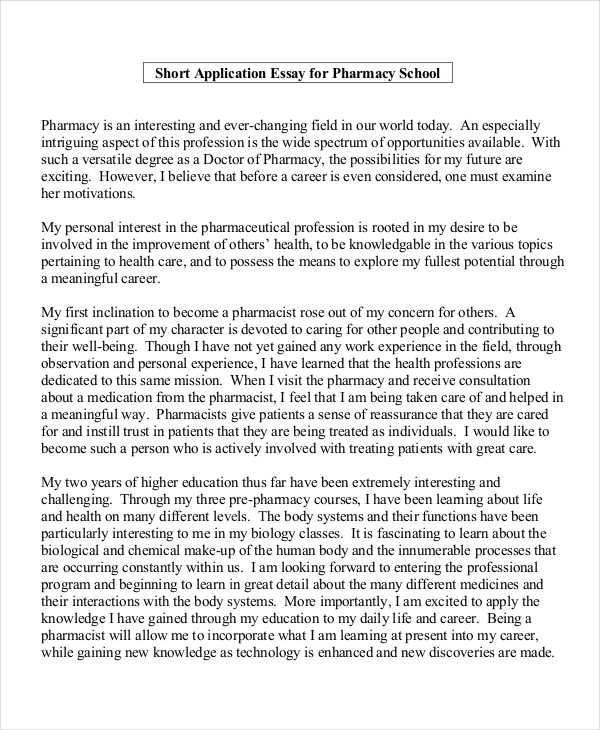
e-education.psu.edu
High School Graduation Essay
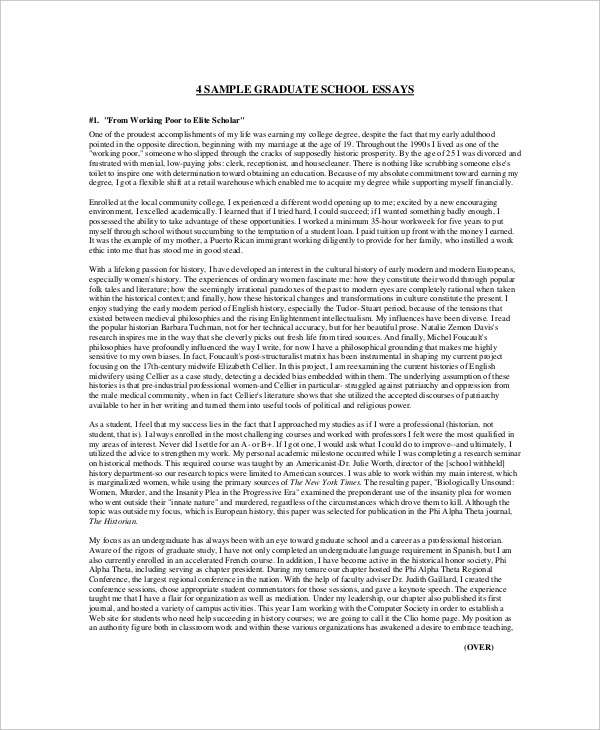
High School Leadership Essay
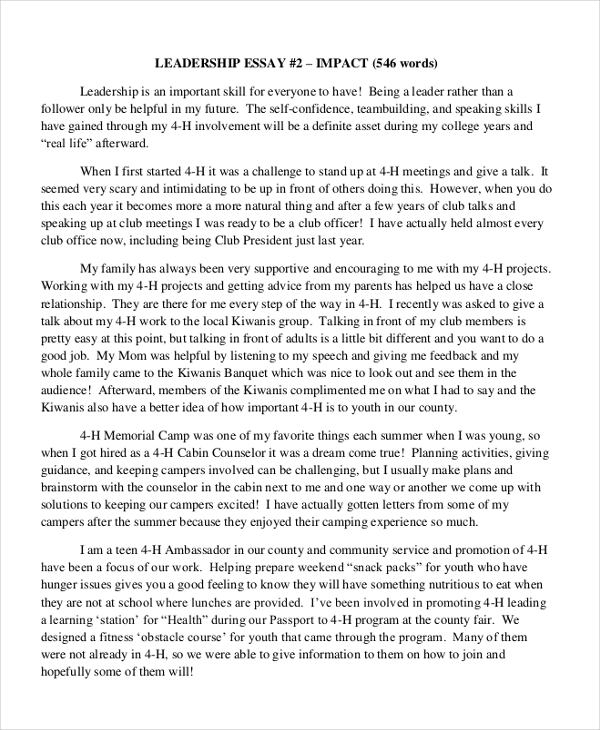
web.extension.illinois.edu
How to Write a High School Essay
Some teachers are really not that strict when it comes to writing essay because they too understand the struggles of writing stuff like these. However, you need to know the basics when it comes to writing a high school essay.
1. Understand the Essay Prompt
- Carefully read the essay prompt or question to understand what’s required. Identify the type of essay (narrative, persuasive, expository, etc.) and the main topic you need to address.
2. Choose a Topic
- If the topic isn’t provided, pick one that interests you and fits the essay’s requirements. Make sure it’s neither too broad nor too narrow.
3. Conduct Research (if necessary)
- For expository, argumentative, or research essays, gather information from credible sources to support your arguments. Take notes and organize your findings.
4. Create an Outline
- Outline your essay to organize your thoughts and structure your arguments effectively. Include an introduction, body paragraphs, and a conclusion.
5. Write the Introduction
- Start with a hook to grab the reader’s attention (a quote, a question, a shocking fact, etc.). Introduce your topic and end the introduction with a thesis statement that presents your main argument or purpose.
6. Develop Body Paragraphs
- Each body paragraph should focus on a single idea or argument that supports your thesis. Start with a topic sentence, provide evidence or examples, and explain how it relates to your thesis.
7. Write the Conclusion
- Summarize the main points of your essay and restate your thesis in a new way. Conclude with a strong statement that leaves a lasting impression on the reader.
Types of High School Essay
1. narrative essay.
Narrative essays tell a story from the writer’s perspective, often highlighting a personal experience or event. The focus is on storytelling, including characters, a setting, and a plot, to engage readers emotionally. This type allows students to explore creativity and expressiveness in their writing.
2. Descriptive Essay
Descriptive essays focus on detailing and describing a person, place, object, or event. The aim is to paint a vivid picture in the reader’s mind using sensory details. These essays test the writer’s ability to use language creatively to evoke emotions and bring a scene to life.
3. Expository Essay
Expository essays aim to explain or inform the reader about a topic in a clear, concise manner. This type of essay requires thorough research and focuses on factual information. It’s divided into several types, such as compare and contrast, cause and effect, and process essays, each serving a specific purpose.
4. Persuasive Essay
Persuasive essays aim to convince the reader of a particular viewpoint or argument. The writer must use logic, reasoning, and evidence to support their position while addressing counterarguments. This type tests the writer’s ability to persuade and argue effectively.
5. Analytical Essay
Analytical essays require the writer to break down and analyze an element, such as a piece of literature, a movie, or a historical event. The goal is to interpret and make sense of the subject, discussing its significance and how it achieves its purpose.
6. Reflective Essay
Reflective essays are personal pieces that ask the writer to reflect on their experiences, thoughts, or feelings regarding a specific topic or experience. It encourages introspection and personal growth by examining one’s responses and learning from them.
7. Argumentative Essay
Similar to persuasive essays, argumentative essays require the writer to take a stance on an issue and argue for their position with evidence. However, argumentative essays place a stronger emphasis on evidence and logic rather than emotional persuasion.
8. Research Paper
Though often longer than a typical essay, research papers in high school require students to conduct in-depth study on a specific topic, using various sources to gather information. The focus is on presenting findings and analysis in a structured format.
Tips for High School Essays
Writing a high school essay if you have the tips on how to do essay effectively . This will give you an edge from your classmates.
- Stay Organized: Keep your notes and sources well-organized to make the writing process smoother.
- Be Clear and Concise: Avoid overly complex sentences or vocabulary that might confuse the reader.
- Use Transitions: Ensure that your paragraphs and ideas flow logically by using transition words and phrases.
- Cite Sources: If you use direct quotes or specific ideas from your research, make sure to cite your sources properly to avoid plagiarism.
- Practice: Like any skill, essay writing improves with practice. Don’t hesitate to write drafts and experiment with different writing styles.
Importance of High School Essay
Aside from the fact that you will get reprimanded for not doing your task, there are more substantial reasons why a high school essay is important. First, you get trained at a very young age. Writing is not just for those who are studying nor for your teachers. As you graduate from high school and then enter college (can see college essays ), you will have more things to write like dissertations and theses.
At least, when you get to that stage, you already know how to write. Aside from that, writing high essays give a life lesson. That is, patience and resourcefulness. You need to find the right resources for your essay as well as patience when finding the right inspiration to write.
How long is a high school essay?
A high school essay typically ranges from 500 to 2000 words, depending on the assignment’s requirements and the subject matter.
How do you start a personal essay for high school?
Begin with an engaging hook (an anecdote, quote, or question) that introduces your theme or story, leading naturally to your thesis or main point.
What makes a good high school essay?
A good high school essay features a clear thesis, coherent structure, compelling evidence, and personal insights, all presented in a polished, grammatically correct format.
High School Essay Generator
Text prompt
- Instructive
- Professional
Write a High School Essay on the importance of participating in sports.
Discuss the role of student government in high schools in a High School Essay.
Persuasive Essay Guide
Persuasive Essay Examples
Last updated on: Feb 9, 2023
Free Persuasive Essay Examples to Help you Get Started
By: Caleb S.
Reviewed By: Rylee W.
Published on: Jan 28, 2020

There are many different kinds of essays, and a persuasive essay is one of them. When writing one, you will have to maintain a certain kind of voice and style throughout the essay.
We know that it could be difficult for you to adapt to a certain tone and maintain it throughout the essay.
Therefore, we gathered some easy-to-understand and high-quality persuasive essay examples to help you get started. These examples will help you know how persuasive writing is different from other kinds of writing.

On this Page
Good Persuasive Essay Examples
There are a lot of benefits of reading great and well-written essays. However, for many students, writing this type of essay would be a novel task. They may not have written it before and need help.
Essays examples come in handy in such situations. This is especially helpful before you begin to write a persuasive essay, which extends to selecting a topic. A persuasive piece of writing is based on encouraging the readers to adopt and agree with your perspective.
These essay examples help the students in the following ways.
- They help the students choose from good persuasive essay topics .
- They help with proper essay formatting.
- They help the students know about the required essay sections.
- They tell the students about the kind of content that is suitable for that particular kind of essay.
- They help you make your essay an effective persuasive essay.
Reading great essay examples or samples helps you know about your weaknesses and the areas you need to focus on.
Here are some examples for your ease.
PERSUASIVE ESSAY EXAMPLE ABOUT COVID 19
PERSUASIVE ESSAY EXAMPLE ABOUT PRODUCT
PERSUASIVE ESSAY EXAMPLE 5 PARAGRAPH
How to Start a Persuasive Essay - Example
Starting your essay engaging will help to keep the readers accepting your point of view. This is important because if you go astray, the reader will lose interest and leave your essay in the middle. To avoid it, make sure that your introduction and essay start is strong and impactful.
Below is an example that gives you a better idea and makes your essay writing process easy.
HOW TO START A PERSUASIVE ESSAY EXAMPLE

Paper Due? Why Suffer? That's our Job!
Persuasive Essay Examples for Elementary Students
At primary school, teachers assign essays to students as a way of improving their writing skills. However, the essays are very simple and not very complex, so the students easily write them.
Below are some good persuasive essay topics for primary school kids.
Persuasive Essay Examples for 3rd Grade
PERSUASIVE ESSAY EXAMPLES FOR 3RD GRADE
Persuasive Essay Examples for 4th Grade
PERSUASIVE ESSAY EXAMPLES FOR 4TH GRADE
Persuasive Essay Examples for 5th Grade
PERSUASIVE ESSAY EXAMPLES FOR 5TH GRADE
Persuasive Essay Examples for Middle School
Middle school kids are better acquainted with the essays. These kids learn many things, and by now, essays have become a common part of their homework.
If you are a middle school student and looking for some essay examples, then refer below.
Persuasive Essay Examples for 6th Grade
PERSUASIVE ESSAY EXAMPLES FOR 6TH GRADE
Persuasive Essay Examples for 7th Grade
PERSUASIVE ESSAY EXAMPLES FOR 7TH GRADE
Persuasive Essay Examples for 8th Grade
PERSUASIVE ESSAY EXAMPLES FOR 8TH GRADE
Persuasive Essay Examples for High School
High-school students are often struggling with writing a persuasive essay. However, if you get help from examples, you will easily write a good one.
Below are some persuasive essay examples to help high-school students.
PERSUASIVE ESSAY EXAMPLES FOR 9TH GRADE
PERSUASIVE ESSAY EXAMPLES FOR 10TH GRADE
Persuasive Essay Examples College
Are you looking for college persuasive essay examples? Therefore, for your help, we gathered a professionally written example that you could use for your ease.
PERSUASIVE ESSAY EXAMPLES FOR COLLEGE
Higher English Persuasive Essay Examples
Higher English is a standalone subject and a specialized study course. Here, the students study the language and literature together and learn how to hone their writing skills. For this, they also study different fiction and non-fiction texts and works.
Look at this example and know how a good persuasive essay looks like.
PERSUASIVE ESSAY EXAMPLES FOR HIGHER ENGLISH
How to End a Persuasive Essay - Examples
The ending is as important for your essay as the beginning. A strong conclusion will leave a lasting and strong mark on the reader. This is why you do not end your essay in haste and put ample thought into it.
Refer to the below example to know how to end your persuasive essay strongly.
HOW TO END A PERSUASIVE ESSAY - EXAMPLE
Tough Essay Due? Hire Tough Writers!
Tips to Write a Great Persuasive Essay
Below are some helpful tips that will assist you in writing an engaging and great essay.
- Your essay topic should be about something that you are passionate about. It is important because you work better when you are working on something that you like.
- Know your audience fully before starting to write your essay. The essay content largely depends on your academic level. Teachers of higher grades expect the essays to be perfectly researched and written. Therefore, make it according to your teacher’s expectations.
- Begin the essay with a powerful hook sentence. This could be anything like a rhetorical question, a fact, or something interesting about the main essay topic.
- Add a brief and relevant thesis statement after the introduction and divide the body paragraphs according to the number of ideas.
- Do proper research about both sides of the argument. It will help you counter the opposite views and put your point of view more significantly. Do not assume that the audience knows about your stance; research and tell them a better story.
- Emphasize your viewpoint with strong and substantial evidence and details
- Keep the tone empathetic and make the reader feel that you can relate to their experiences and emotions. This is a powerful writing technique because people trust those who know their feelings.
- Divide the sections logically and maintain proper transition between the sections and the rest of the essay.
- Do not add any new ideas at the end of the essay or in conclusion. This section must stick to the main ideas only. Thus, explain one or two of the core ideas and your personal opinion here.
- Proofread your essay thoroughly and make sure that it is error-free and perfectly written.
- Do not mix the persuasive essay with an argumentative essay; they both are different.
Following all these tips, you will be able to write an engaging and perfect persuasive essay.
However, if you still need help. Consult 5StarEssays.com , a professional writing service that provides write my essay help to high-school, college, and university students. We have a dedicated team of professional writers, ensuring you get high-quality essays and papers within the given deadline.
So, contact us now and get your essay on time.
Frequently Asked Questions
What are the 5 persuasive techniques.
Below are the five persuasive techniques.
- Think about tone.
- Know the reader’s purpose.
- Establish trust and credibility.
- Use rhetoric and repetition.
- Pay attention to language.
How do you start a persuasive essay?
Here are some steps that you should follow and start writing a persuasive essay.
- Brainstorm the topic ideas.
- Research on the topic.
- Create an outline.
- Develop the thesis statement.
- Choose a strong hook statement.
- Divide the information into body paragraphs.

Arts, Persuasive Essay
Caleb S. has been providing writing services for over five years and has a Masters degree from Oxford University. He is an expert in his craft and takes great pride in helping students achieve their academic goals. Caleb is a dedicated professional who always puts his clients first.
Was This Blog Helpful?
Keep reading.
- Persuasive Essay Guide - How to Write a Persuasive Essay

- Persuasive Essay Topics Ideas to Craft an A-Worthy Essay

- Persuasive Essay Outline - Detailed Guide with Examples

People Also Read
- college application essay examples
- autobiography vs memoir
- 1000 word essay
- compare and contrast essay outline
Burdened With Assignments?

Advertisement
- Homework Services: Essay Topics Generator
© 2024 - All rights reserved
100 Persuasive Essay Topics
- M.Ed., Education Administration, University of Georgia
- B.A., History, Armstrong State University
Persuasive essays are a bit like argument essays and persuasive speeches , but they tend to be a little kinder and gentler. Argument essays require you to discuss and to attack an alternate view, while persuasive essays are attempts to convince the reader that you have a believable argument. In other words, you are an advocate, not an adversary.
A Persuasive Essay Has 3 Components
- Introduction : This is the opening paragraph of your essay. It contains the hook, which is used to grab the reader's attention, and the thesis, or argument, which you'll explain in the next section.
- Body : This is the heart of your essay, usually three to five paragraphs in length. Each paragraph examines one theme or issue used to support your thesis.
- Conclusion : This is the final paragraph of your essay. In it, you'll sum up the main points of the body and connect them to your thesis. Persuasive essays often use the conclusion as a last appeal to the audience.
Learning how to write a persuasive essay is an essential skill that people use every day in fields from business to law to media and entertainment. English students can begin writing a persuasive essay at any skill level. You're sure to find a sample topic or two from the list of 100 persuasive essays below, sorted by degree of difficulty.
Watch Now: 12 Ideas for Great Persuasive Essay Topics
- Kids should get paid for good grades.
- Students should have less homework.
- Snow days are great for family time.
- Penmanship is important.
- Short hair is better than long hair.
- We should all grow our own vegetables.
- We need more holidays.
- Aliens probably exist.
- Gym class is more important than music class.
- Kids should be able to vote.
- Kids should get paid for extra activities like sports.
- School should take place in the evenings.
- Country life is better than city life.
- City life is better than country life.
- We can change the world.
- Skateboard helmets should be mandatory.
- We should provide food for the poor.
- Children should be paid for doing chores.
- We should populate the moon .
- Dogs make better pets than cats.
Intermediate
- The government should impose household trash limits.
- Nuclear weapons are an effective deterrent against foreign attack.
- Teens should be required to take parenting classes.
- We should teach etiquette in schools.
- School uniform laws are unconstitutional.
- All students should wear uniforms.
- Too much money is a bad thing.
- High schools should offer specialized degrees in arts or sciences.
- Magazine advertisements send unhealthy signals to young women.
- Robocalling should be outlawed.
- Age 12 is too young to babysit.
- Children should be required to read more.
- All students should be given the opportunity to study abroad.
- Yearly driving tests should be mandatory past age 65.
- Cell phones should never be used while driving.
- All schools should implement bullying awareness programs.
- Bullies should be kicked out of school.
- Parents of bullies should have to pay a fine.
- The school year should be longer.
- School days should start later.
- Teens should be able to choose their bedtime.
- There should be a mandatory entrance exam for high school.
- Public transit should be privatized.
- We should allow pets in school.
- The voting age should be lowered to 16.
- Beauty contests are bad for body image.
- Every American should learn to speak Spanish.
- Every immigrant should learn to speak English.
- Video games can be educational.
- College athletes should be paid for their services.
- We need a military draft .
- Professional sports should eliminate cheerleaders.
- Teens should be able to start driving at 14 instead of 16.
- Year-round school is a bad idea.
- High school campuses should be guarded by police officers.
- The legal drinking age should be lowered to 19.
- Kids under 15 shouldn't have Facebook pages.
- Standardized testing should be eliminated.
- Teachers should be paid more.
- There should be one world currency.
- Domestic surveillance without a warrant should be legal.
- Letter grades should be replaced with a pass or fail.
- Every family should have a natural disaster survival plan.
- Parents should talk to kids about drugs at a young age.
- Racial slurs should be illegal.
- Gun ownership should be tightly regulated.
- Puerto Rico should be granted statehood.
- People should go to jail when they abandon their pets.
- Free speech should have limitations.
- Members of Congress should be subject to term limits.
- Recycling should be mandatory for everyone.
- High-speed internet access should be regulated like a public utility.
- Yearly driving tests should be mandatory for the first five years after getting a license.
- Recreational marijuana should be made legal nationwide.
- Legal marijuana should be taxed and regulated like tobacco or alcohol.
- Child support dodgers should go to jail.
- Students should be allowed to pray in school.
- All Americans have a constitutional right to health care.
- Internet access should be free for everyone.
- Social Security should be privatized.
- Pregnant couples should receive parenting lessons.
- We shouldn't use products made from animals.
- Celebrities should have more privacy rights.
- Professional football is too violent and should be banned.
- We need better sex education in schools.
- School testing is not effective.
- The United States should build a border wall with Mexico and with Canada.
- Life is better than it was 50 years ago.
- Eating meat is unethical.
- A vegan diet is the only diet people should follow.
- Medical testing on animals should be illegal.
- The Electoral College is outdated.
- Medical testing on animals is necessary.
- Public safety is more important than an individual's right to privacy.
- Single-sex colleges provide a better education.
- Books should never be banned.
- Violent video games can cause people to act violently in real life.
- Freedom of religion has limitations.
- Nuclear power should be illegal.
- Climate change should be the president's primary political concern.
- Arizona State University Writing Center staff. " Persuasive Essay Structure ." ASU.edu, June 2012.
- Collins, Jen, and Polak, Adam. " Persuasive Essays ." Hamilton.edu.
- 100 Persuasive Speech Topics for Students
- Middle School Debate Topics
- 50 Argumentative Essay Topics
- 40 Writing Topics for Argumentative and Persuasive Essays
- How to Write a Solid Thesis Statement
- Controversial Speech Topics
- How to Write a Persuasive Essay
- Tips on How to Write an Argumentative Essay
- The Ultimate Guide to the 5-Paragraph Essay
- 30 Writing Topics: Persuasion
- Write a Compare and Contrast Essay
- Write an Attention-Grabbing Opening Sentence for an Essay
- How to Write a Great Essay for the TOEFL or TOEIC
- What Is Expository Writing?
- Bad Essay Topics for College Admissions
- How to Write a Narrative Essay or Speech

- school Campus Bookshelves
- menu_book Bookshelves
- perm_media Learning Objects
- login Login
- how_to_reg Request Instructor Account
- hub Instructor Commons
- Download Page (PDF)
- Download Full Book (PDF)
- Periodic Table
- Physics Constants
- Scientific Calculator
- Reference & Cite
- Tools expand_more
- Readability
selected template will load here
This action is not available.

6.4: Persuasive Essays
- Last updated
- Save as PDF
- Page ID 219036

- Kathryn Crowther et al.
- Georgia Perimeter College via GALILEO Open Learning Materials
Writing a Persuasive Essay
Choose a topic that you feel passionate about. If your instructor requires you to write about a specific topic, approach the subject from an angle that interests you. Begin your essay with an engaging introduction. Your thesis should typically appear somewhere in your introduction. Be sure to have a clear thesis that states your position and previews the main points your essay will address.
Start by acknowledging and explaining points of view that may conflict with your own to build credibility and trust with your audience. Also state the limits of your argument. This too helps you sound more reasonable and honest to those who may naturally be inclined to disagree with your view. By respectfully acknowledging opposing arguments and conceding limitations to your own view, you set a measured and responsible tone for the essay.
Make your appeals in support of your thesis by using sound, credible evidence. Use a balance of facts and opinions from a wide range of sources, such as scientific studies, expert testimony, statistics, and personal anecdotes. Each piece of evidence should be fully explained and clearly stated. Make sure that your style and tone are appropriate for your subject and audience. Tailor your language and word choice to these two factors, while still being true to your own voice.
Finally, write a conclusion that effectively summarizes the main argument and reinforces your thesis. See the sample persuasive essay at the end of this section, “The Value of Technical High Schools in Georgia’s Business Marketplace,” by student Elizabeth Lamoureux. Please note that this essay uses the MLA style of documentation, for which you can find guidelines at Purdue University’s Online Writing Lab (OWL) website: http://owl.english.purdue.edu .
Sample Persuasive Essay
In this student paper, the student makes a persuasive case for the value of technical high schools in Georgia. As you read, pay attention to the different persuasive devices the writer uses to convince us of her position. Also note how the outline gives a structure to the paper that helps lead the reader step-by-step through the components of the argument.
Student Outline
Elizabeth Lamoureux
English 1101 Honors
April 25, 2013
Thesis : Technical high schools should be established in every county in Georgia because they can provide the technical training that companies need, can get young people into the workforce earlier, and can reduce the number of drop outs.
- Education can focus on these specific technical fields.
- Education can work with business to fill these positions.
- Apprenticeship programs can be a vital part of a student’s education.
- Apprenticeship programs are integral to Germany’s educational program, providing a realistic model for technical high schools in Georgia.
- Students train during their high school years for their chosen profession.
- Students begin to work in a profession or trade where there is a need.
- Students will become independent and self-supporting at the age of eighteen when many of their peers are still dependent upon their parents.
- Students can make more money over the course of their lifetimes.
- Students are more motivated to take courses in which they have an interest.
- Students will find both core and specialized classes more interesting and valuable when they can see the practical application of the subjects.
- Students would be able to earn a living wage while still taking classes that would eventually lead to full-time employment.
- Students would learn financial skills through experience with money management.
Student Essay
The Value of Technical High Schools in Georgia’s Business Marketplace
Businesses need specialized workers; young people need jobs. It seems like this would be an easy problem to solve. However, business and education are not communicating with each other. To add to this dilemma, emphasis is still put on a college education for everyone. Samuel Halperin, study director of the Commission on Work, Family, and Citizenship for the W. T. Grant Foundation, co-authored two reports: “The Forgotten Half: Non-College Youth in America” and “The Forgotten Half: Pathways to Success for America’s Youth and Young Families.” Halperin states: “While the attention of the nation was focused on kids going to college . . . the truth is that 70 percent of our adults never earn a college degree” (qtd. in Rogers). According to an article in Issues in Science and Technology, the Bureau of Labor Statistics projects that there will be more need for skills obtained through “community colleges, occupational training, and work experience” (Lerman). As Anne C. Lewis points out, although the poor job situation is recognized as detrimental to American youth, President Bush tried to get rid of career and technical education (CTE) and “promote strictly academic programs.” Luckily, Congress did not support it (Lewis 5). The figure for U.S. teen joblessness in October 2009 was 27.6 percent, the highest since World War II (Karaim). According to Thomas E. Persing, Americans are “disregarding the 50 percent who enter college and fail to graduate. . . .” Since everyone does not want or need to go to college, young people need an alternative choice, namely, technical high schools. Technical high schools should be established in every county in Georgia because they can provide the technical training that companies need, can get young people into the work force earlier, and can reduce the number of drop outs.
Technical high schools provide students with the technical training that companies need. By getting input from businesses on exactly what their specialized needs are, school systems could adapt their curricula to accommodate the needs of businesses. According to an article in Issues in Science and Technology, “employers report difficulty in recruiting workers with adequate skills.” The article goes on to say that “the shortage of available skills is affecting their ability to serve customers, and 84% of the firms say that the K-12 school system is not doing a good job preparing students for the workplace” (Lerman). Education can work with businesses to provide them with the workforce they need, and students can learn the skills they need through apprenticeship programs.
Business can be further involved by providing these apprenticeship programs, which can be a vital part of a student’s education. Currently, Robert Reich, economist and former Secretary of Labor, and Richard Riley, Secretary of Education, have spoken up for apprenticeship programs (Persing). In these programs, not only do students learn job-specific skills, but they also learn other skills for success in the work place, such as “communication, responsibility, teamwork, allocating resources, problem-solving, and finding information” (Lerman). Businesses complain that the current educational system is failing in this regard and that students enter the workforce without these skills.
The United States could learn from other countries. Apprenticeship programs are integral to Germany’s educational program, for example. Because such large numbers of students in a wide array of fields take advantage of these programs, the stigma of not attending college is reduced. Timothy Taylor, the Conversable Economist, explains that most German students complete this program and still have the option to pursue a postsecondary degree. Many occupations are represented in this program, including engineering, nursing, and teaching. Apprenticeship programs can last from one to six years and provide students with a wage for learning. This allows both business and student to compete in the market place. According to Julie Rawe, “under Germany’s earn-while-you-learn system, companies are paying 1.6 million young adults to train for about 350 types of jobs. . . .”
A second important reason technical high schools should be promoted in Georgia is that they prepare students to enter the work force earlier. Students not interested in college enter the work force upon high school graduation or sooner if they have participated in an apprenticeship or other cooperative program with a business. Students train during their high school years for their chosen profession and often work for the company where they trained. This ensures that students begin to work in a profession or trade where there is a need.
Another positive factor is that jobs allow students to earn a living upon graduation or before. Even though students are considered adults at eighteen, many cannot support themselves. The jobs available to young people are primarily minimum wage jobs which do not provide them with enough resources to live independently. One recent study indicates that the income gap is widening for young people, and “In March 1997, more than one-fourth of out-ofschool young adults who were working full-time were earning less than the poverty line income standard of just over $16,000 annually for a family of four” (“The Forgotten Half Revisited”). Conversely, by entering the work force earlier with the skills businesses need, young people make more money over their lifetimes. Robert I. Lerman considers the advantages:
Studies generally find that education programs with close links to the world of work improve earnings. The earnings gains are especially solid for students unlikely to attend or complete college. Cooperative education, school enterprises, and internship or apprenticeship increased employment and lowered the share of young men who are idle after high school.
Young people can obviously profit from entering the work force earlier.
One of the major benefits of promoting technical high schools in Georgia is that they reduce the number of dropouts. According to an article in the Atlanta Journal-Constitution, the figure for dropouts for the Atlanta metro area is about thirty-four percent (McCaffrey and Badertscher A16). The statistic for Germany’s dropout rate is less than nine percent (Rawe). As Rawe maintains, students stay in school because they cannot get the job if they do not have the diploma. Beyond the strong incentive of a job, students are more motivated to take courses in which they have an interest. In addition to the specialized career classes, students are still required to take core classes required by traditional high schools. However, practical application of these subjects makes them more interesting and more valuable to the students.
Another reason students drop out is to support their families. By participating in a program in which they are paid a wage and then entering that job full time, they no longer need to drop out for this reason. It is necessary for many students to contribute financially to the family: by getting a job earlier, they can do this. Joining the work force early also provides students with financial skills gained through experience with money management.
The belief of most Americans that everyone needs to have a college education is outdated. The United States needs skilled employees at all levels, from the highly technical to the practical day to day services society needs to sustain its current standard of living. Germany is doing this through its apprenticeship programs which have proven to be economically successful for both businesses and workers. If the State of Georgia put technical high schools in every county, businesses would get employees with the skills they need; young people would get into good paying jobs earlier, and schools would have fewer dropouts.
Works Cited
“The Forgotten Half Revisited: American Youth and Young Families, 1988-2008.” American Youth Policy Forum . N.p., n.d. Web. 21 Apr. 2012.
Karaim, Reed. “Youth Unemployment.” CQ Global Researcher 6 Mar. 2012: 105-28. Web. 21 Apr. 2012.
Lerman, Robert I. “Building a Wider Skills Net for Workers: A Range of Skills Beyond Conventional Schooling Are Critical to Success in the Job Market, and New Educational Approaches Should Reflect These Noncognitive Skills and Occupational Qualifications.” Issues in Science and Technology 24.4 (2008): 65+. Gale Opposing Viewpoints in Context . Web. 21 Apr. 2012.
Lewis, Anne C. “Support for CTE.” Tech Directions 65.3 (2005): 5-6. Academic Search Complete. Web. 11 Apr. 2012.
McCaffrey, Shannon, and Nancy Badertscher. “Painful Truth in Grad Rates.” Atlanta Journal-Constitution 15 Apr. 2012: A1+. Print.
Persing, Thomas E. “The Role of Apprenticeship Programs.” On Common Ground . Yale-New Haven Teachers Institute, Fall 1994. Web. 16 Apr. 2012.
Rawe, Julie. “How Germany Keeps Kids From Dropping Out.” Time Magazine U.S. Time Magazine, 11 Apr. 2006. Web. 16 Apr. 2012.
Rogers, Betsy. “Remembering the ‘Forgotten Half.’” Washington University in St. Louis Magazine Spring 2005. Web. 21 Apr. 2012.
Taylor, Timothy. “Apprenticeships for the U.S. Economy.” Conversableeconomist.blogspot.com. Conversable Economist , 18 Oct. 2011. Web. 16 Apr. 2012.
Persuasive Essay Writing
Persuasive Essay Examples

Ace Your Next Essay With These Persuasive Essay Examples!
Published on: Jan 5, 2023
Last updated on: Jan 29, 2024

People also read
How to Write a Persuasive Essay: A Step-by-Step Guide
Easy and Unique Persuasive Essay Topics with Tips
The Basics of Crafting an Outstanding Persuasive Essay Outline
Persuasive Essay About Gun Control - Best Examples for Students
Top Examples of Persuasive Essay about Covid-19
Learn How To Write An Impressive Persuasive Essay About Business
Learn How to Craft a Compelling Persuasive Essay About Abortion With Examples!
Make Your Point: Tips and Examples for Writing a Persuasive Essay About Online Education
Learn How To Craft a Powerful Persuasive Essay About Bullying
Craft an Engaging Persuasive Essay About Smoking: Examples & Tips
Learn How to Write a Persuasive Essay About Social Media With Examples
Craft an Effective Argument: Examples of Persuasive Essay About Death Penalty
Share this article
Are you starting to feel overwhelmed with that persuasive essay assignment?
Relax! We're here to help.
In this post, we've collected some persuasive essay examples for you to study. By looking at these examples, you'll better understand how to craft your persuasive essay .
Plus, who knows? You might even find some inspiration for your next writing project.
So let's get started!
On This Page On This Page -->
Persuasive Essay Examples for Students
We've compiled a selection of persuasive essay examples to provide you with a starting point. These examples will serve as practical guides to help you understand how to write persuasively and effectively structure your essays.
Check them out below:
How to Start a Persuasive Essay Examples PDF
Persuasive Essay Examples Middle School PDF
Persuasive Essay Examples High School PDF
Persuasive Essay Examples Grade 10 PDF
Persuasive Essay Examples University PDF
Higher English Persuasive Essay Examples PDF
Political Persuasive Essay Examples PDF
Persuasive Essay Examples About Life PDF
Persuasive Essay Examples About Global Warming PDF
Now that you've seen these examples, you're all set to start writing!
Let's now shift our focus to different formats of persuasive essays, offering you even more versatility in your writing journey.
Persuasive Essay Examples for Different Formats
Looking to get an idea of how a persuasive essay should look according to various formats? We will provide some persuasive essay examples PDF to show you the ideal persuasive essay format.
Persuasive Essay Examples 5 Paragraph PDF
Persuasive Essay Examples 3 Paragraph PDF
Short Persuasive Essay Examples PDF
Tough Essay Due? Hire a Writer!

6 Tips to Write a Compelling Persuasive Essay
By now, you are familiar with the basic persuasive essay requirements, structure, and format. So, here are six basic tips that can help you write a high-scoring persuasive essay:
1. Know Your Audience
Consider who will be reading your essay and what their preconceived notions or beliefs would be. This will enable you to tailor your persuasive essay accordingly to ensure that it has a maximum persuasive impact.
2. Research Thoroughly
Strong persuasive essays are rooted in solid research. When researching for your essay topic, get as much information as possible to make a persuasive case.
3. Analyze Persuasive Essay Examples
Examining persuasive essay examples such as those provided in this blog can help you better understand the persuasive writing style and structure. Look for persuasive essays written by others and use them as models to improve your writing.
4. Structure Your Persuasive Essay
When writing persuasive essays, it is important to have a logical structure that allows you to make your case in an organized manner and effectively support your thesis statement .
Creating a persuasive essay outline before writing can help you structure your essay properly. Through a well-organized outline, proper transitions, and persuasive language, you can achieve a logical arrangement of arguments in your essay.
5. Support Your Argument
Make sure that any claims made in your persuasive essays are backed up through evidence . Be sure to include data, facts, and quotes that aim to convince the readers and support your point of view.
6. Know How To End Your Essay
Just as it's crucial to begin your persuasive essay on a high note, closing your essay effectively is equally important. Close strongly by summarizing the main points and encouraging readers to adopt a specific action.
Persuasive Essay Examples Topics
Selecting the right topic is an important aspect of crafting an effective persuasive essay. Your choice of topic defines the foundation of your argument and greatly influences your essay's overall impact.
Here are some good examples of topics to get you started:
- Should national healthcare be subsidized by the government?
- Should college education be free for all students?
- Is it ethical to use animals in medical research?
- Should public schools incorporate prayer into daily activities?
- Should students be allowed to grade their teachers?
- Should drug testing for welfare recipients be mandatory?
- Should the voting age be lowered to 16?
- Should extreme sports be banned from public entertainment?
- Should recreational marijuana use be legalized?
- Is online education as effective as traditional learning?
Remember, the key is to be convincing by providing clear evidence and logically linking your points together.
Check out some additional persuasive essay topics to get some inspiration to write your next essay.
So, there you have it. Ten persuasive essay examples and tips to help you write a successful paper.
We hope these essays inspire you as you work on your writing.
And if you need a little extra help getting started or polishing off your masterpiece, our custom essay writing service is here to assist.
We offer help from expert writers who are sure to get the grades you deserve. Our persuasive essay writing service ensures that you always get the best essays.
Frequently Asked Questions
What are some examples of persuasive essays.
Examples of persuasive essays include argumentative essays, opinion essays, and cause-and-effect essays that state a clear position and support it with relevant evidence.
How can I make my persuasive essay more effective?
To make your persuasive essay more effective, you should include clear and concise arguments supported by evidence, provide logical explanations for why your position is valid, and address any opposing viewpoints.
How do I structure a persuasive essay?
A persuasive essay typically follows the standard 5-paragraph structure of an introduction, three body paragraphs, and a conclusion.
What are some common persuasive essay topics?
Common persuasive essay topics include gun control, global warming, animal rights, climate change, racial inequality, education reform, and health care reform.
Additionally, current events and controversial topics can be effective persuasive essay topics.
Cathy A. (Literature, Marketing)
For more than five years now, Cathy has been one of our most hardworking authors on the platform. With a Masters degree in mass communication, she knows the ins and outs of professional writing. Clients often leave her glowing reviews for being an amazing writer who takes her work very seriously.
Paper Due? Why Suffer? That’s our Job!

Keep reading

Legal & Policies
- Privacy Policy
- Cookies Policy
- Terms of Use
- Refunds & Cancellations
- Our Writers
- Success Stories
- Our Guarantees
- Affiliate Program
- Referral Program
- AI Essay Writer
Disclaimer: All client orders are completed by our team of highly qualified human writers. The essays and papers provided by us are not to be used for submission but rather as learning models only.
- Grades 6-12
- School Leaders
FREE Poetry Worksheet Bundle! Perfect for National Poetry Month.
101 Interesting Persuasive Essay Topics for Kids and Teens
Use your words to sway the reader.
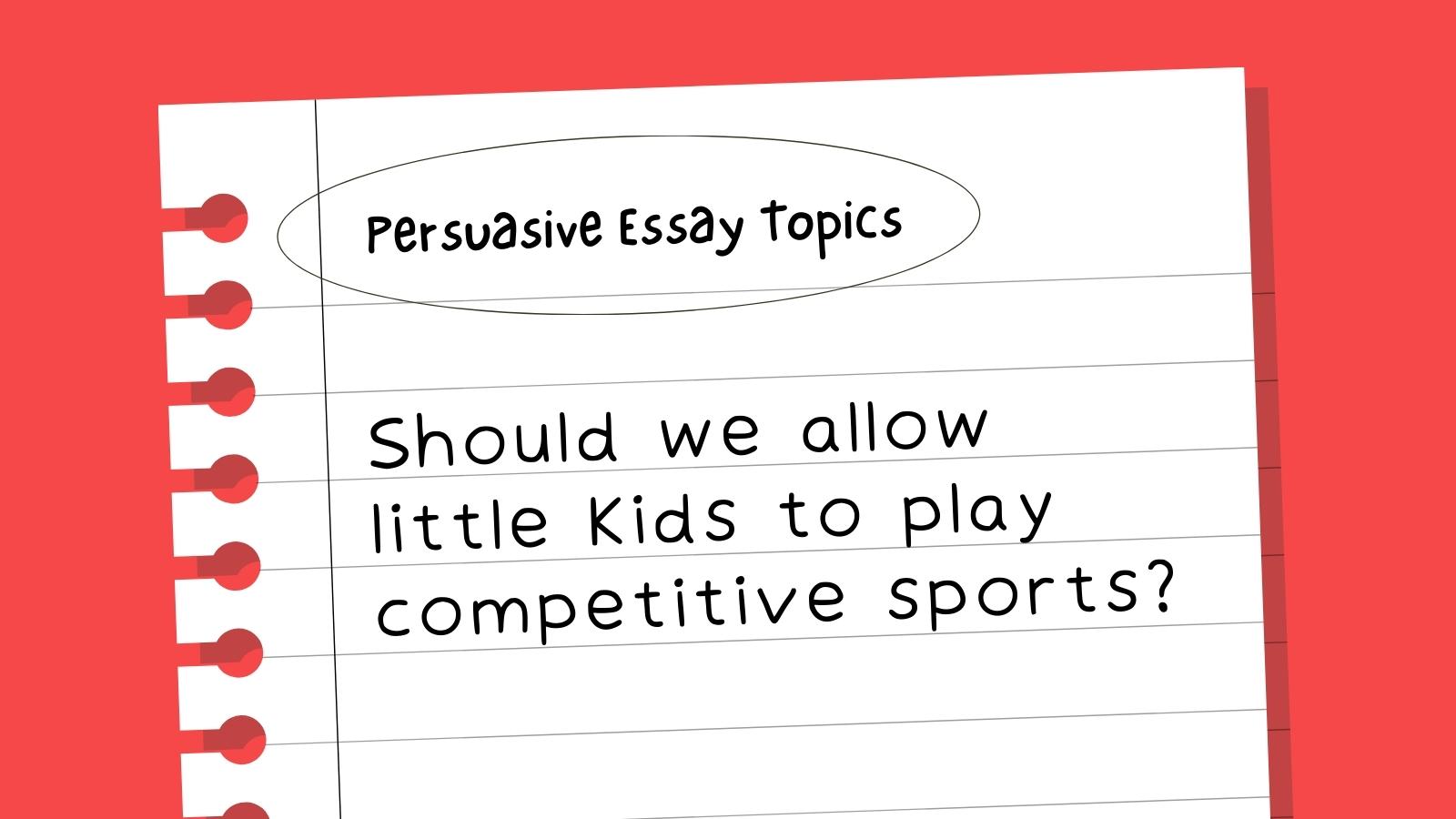
Persuasive writing is one of those skills that can help students succeed in real life. Persuasive essays are similar to argumentative , but they rely less on facts and more on emotion to sway the reader. It’s important to know your audience so you can anticipate any counterarguments they might make and try to overcome them. Try reading some mentor texts to show kids great examples of opinion writing. Then use these persuasive essay topics for practice.
School and Education Persuasive Essay Topics
Life and ethics persuasive essay topics, science and technology persuasive essay topics, sports and entertainment persuasive essay topics, just for fun persuasive essay topics.
- Do you think homework should be required, optional, or not given at all?

- Students should/should not be able to use their phones during the school day.
- Should schools have dress codes?
- If I could change one school rule, it would be …
- Is year-round school a good idea?
- Should we stop giving final exams?
- Is it better to be good at academics or good at sports?
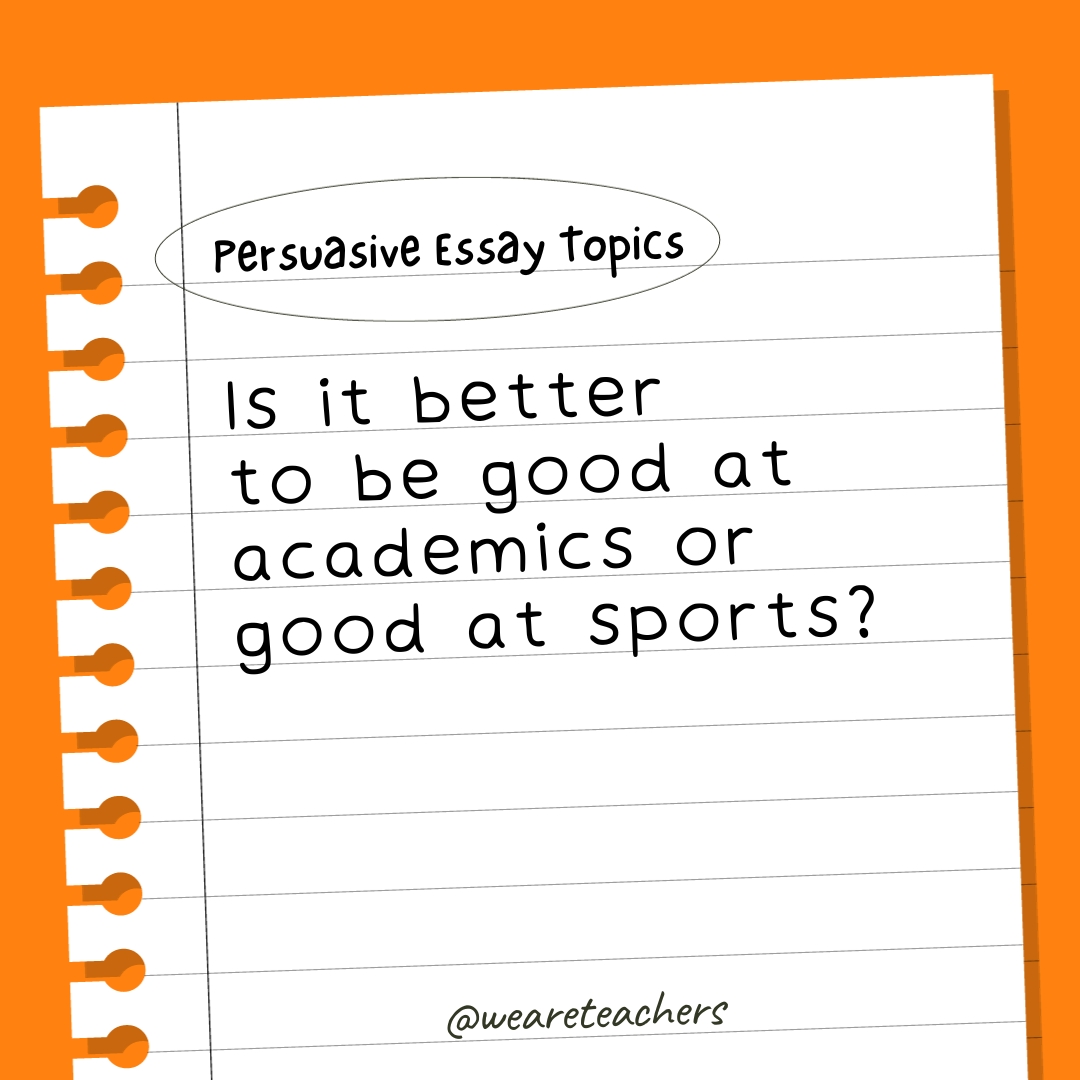
- Which is better, private schools or public schools?
- Should every student have to participate in athletics?
- Do you think schools should ban junk food from their cafeterias?
- Should students be required to volunteer in their communities?
- What is the most important school subject?
- Are letter grades helpful, or should we replace them with something else?
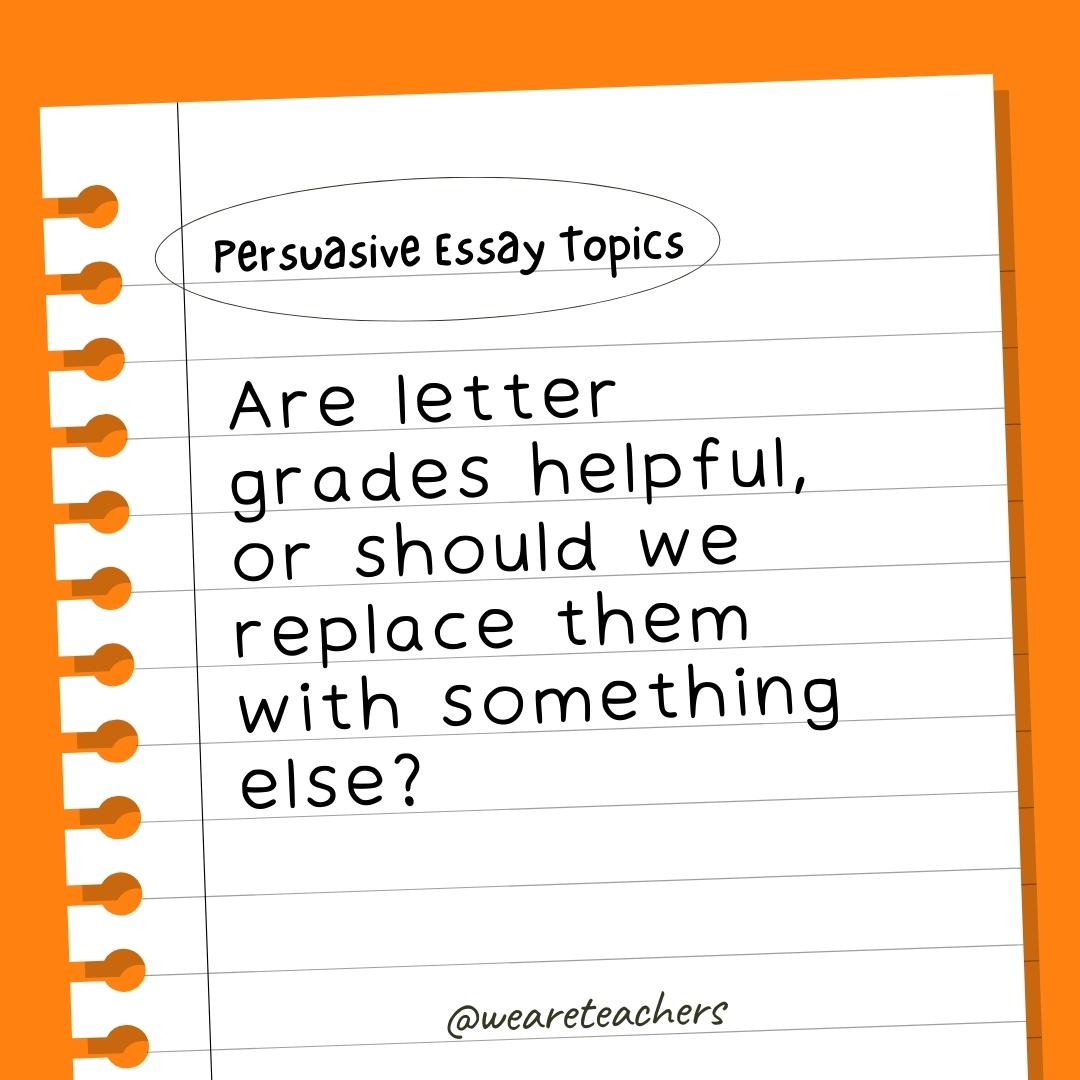
- Is it ever OK to cheat on homework or a test?
- Should students get to grade their teachers?
- Do you think college should be free for anyone who wants to attend?
- Should schools be allowed to ban some books from their libraries?
- Which is better, book smarts or street smarts?
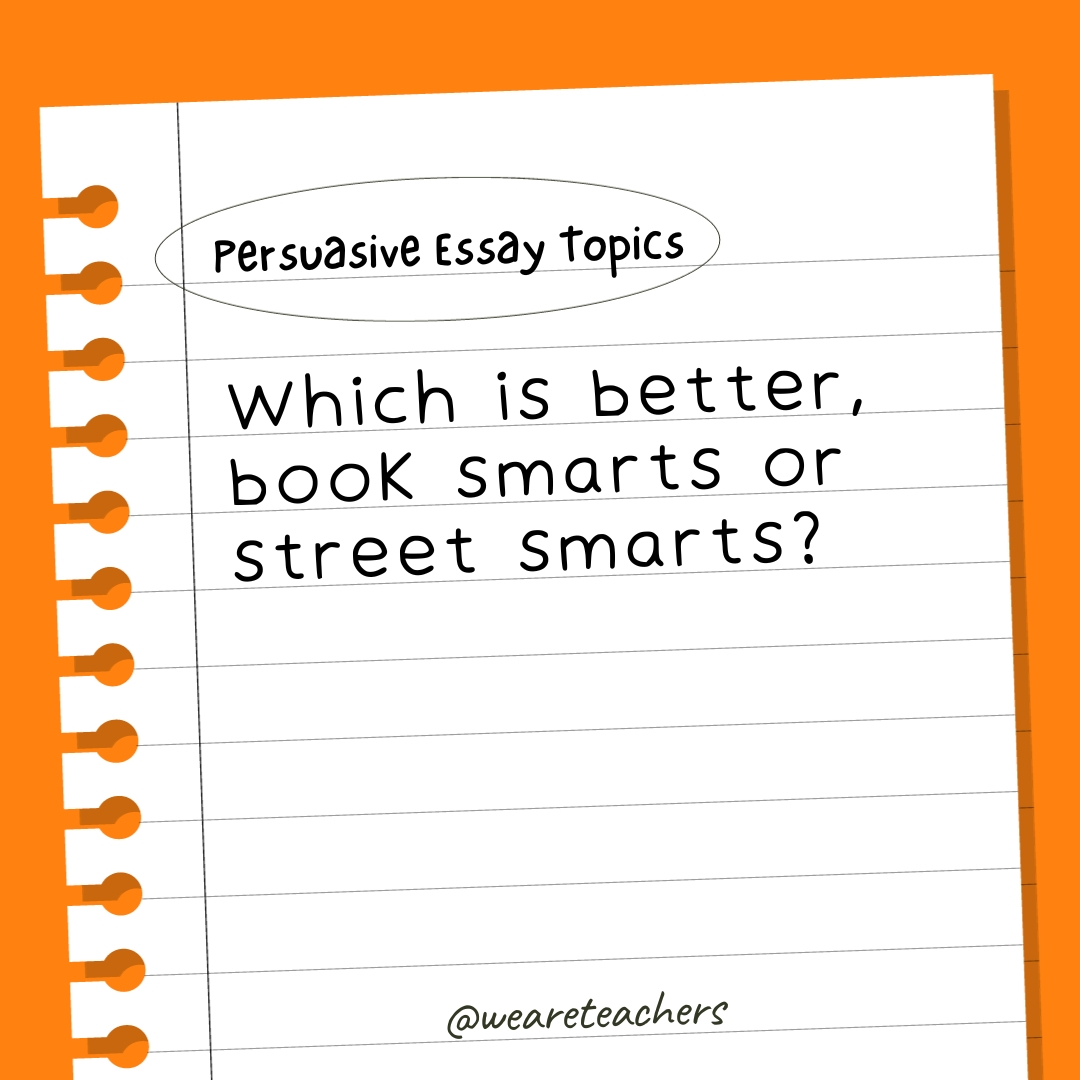
- Should all students have to learn a foreign language?
- Are single-gender schools better or worse for students?
- Is it OK to eat animals?
- What animal makes the best pet?
- Visit an animal shelter, choose an animal that needs a home, and write an essay persuading someone to adopt that animal.
- If you find money on the ground, should you try to find the person who lost it, or is it yours to keep?
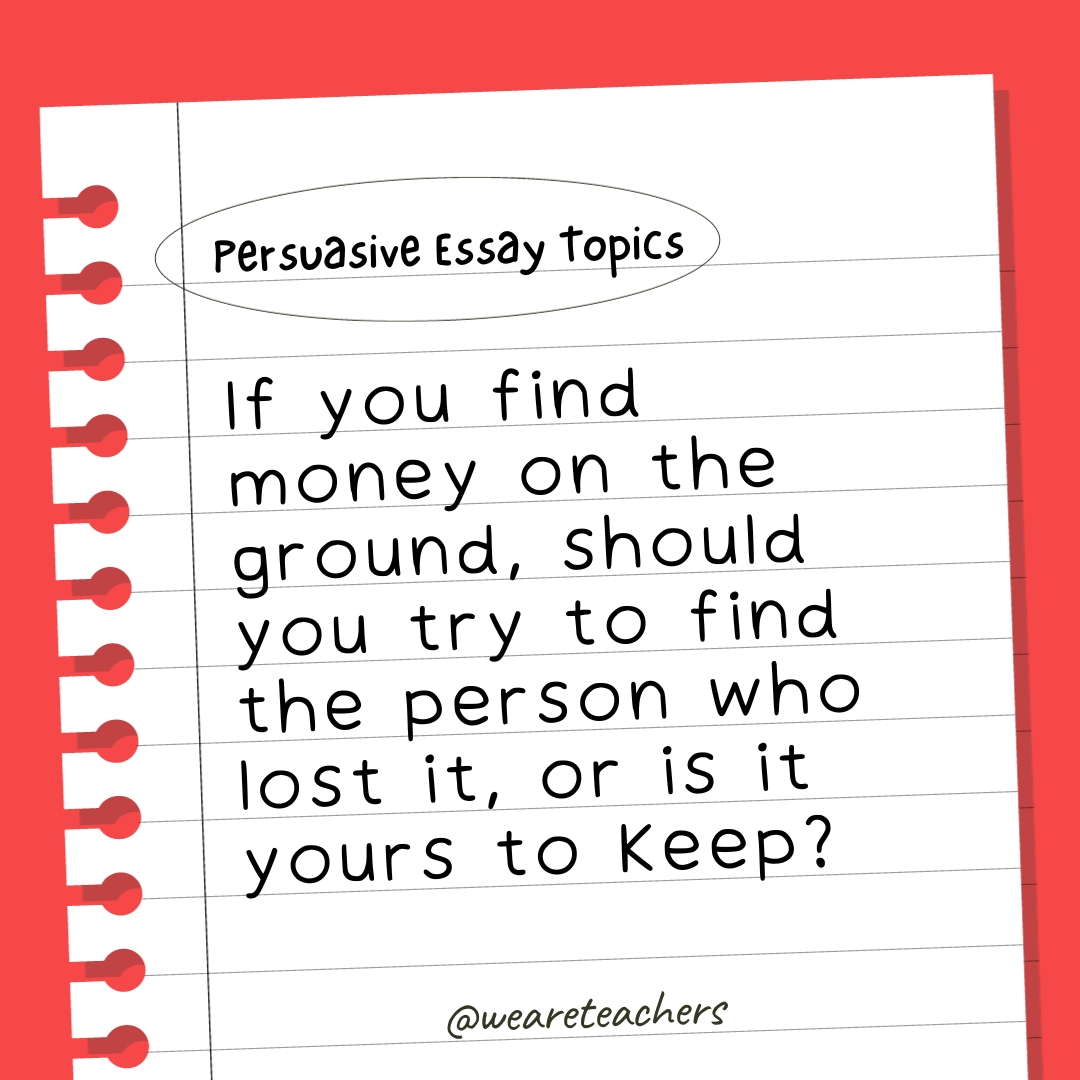
- Who faces more peer pressure, girls or boys?
- Should all Americans be required to vote?
- Is it better to be kind or truthful?
- Which is better, giving or receiving?
- Is it OK to keep animals in zoos?
- Should we change the minimum driving age in the United States?
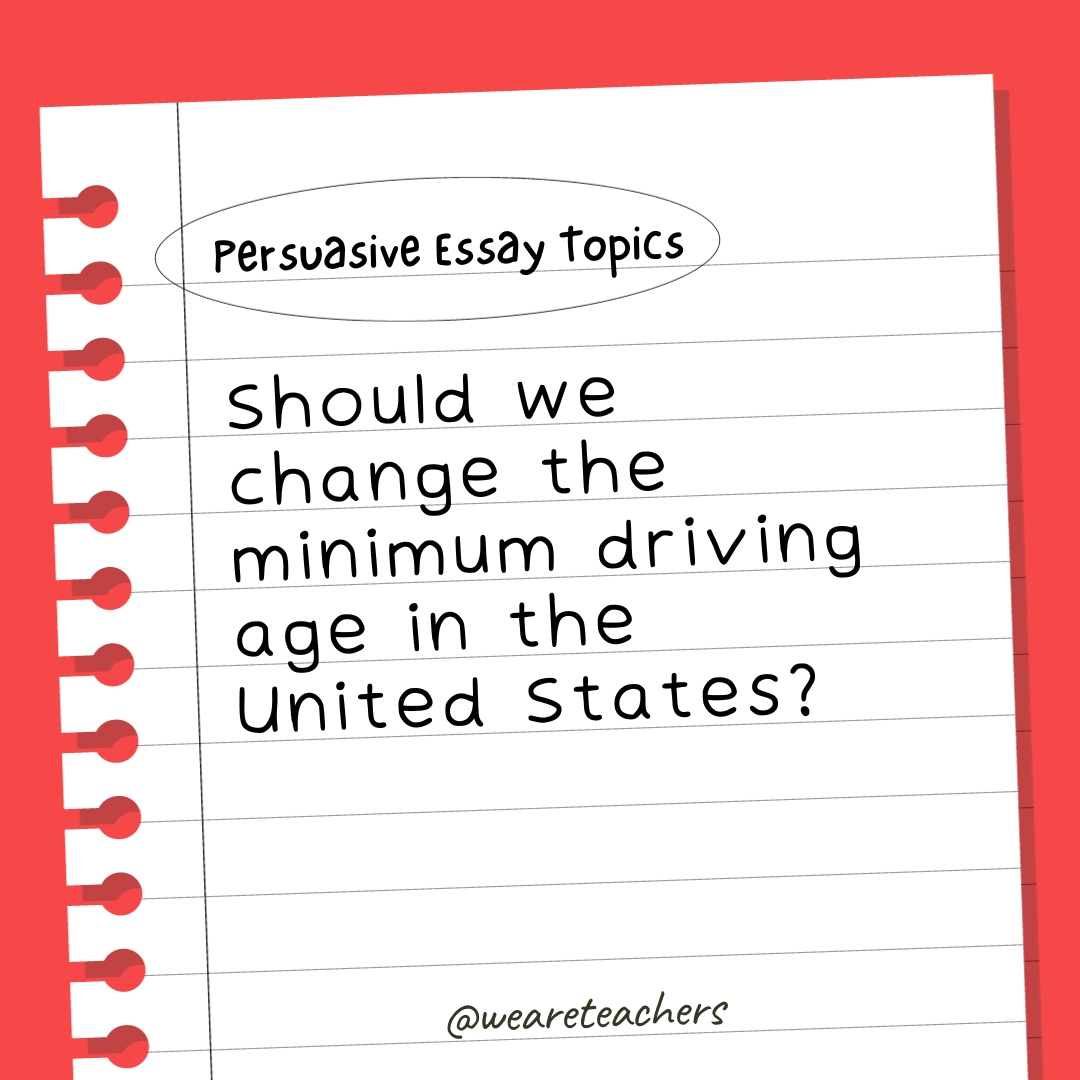
- Which is more important, happiness or success?
- Is democracy the best form of government?
- Is social media helpful or harmful?
- Should parents be punished for their children’s mistakes or crimes?
- Should kids have set bedtimes or just go to bed when they’re sleepy?
- Do you think the government should find a way to provide free health care for everyone?
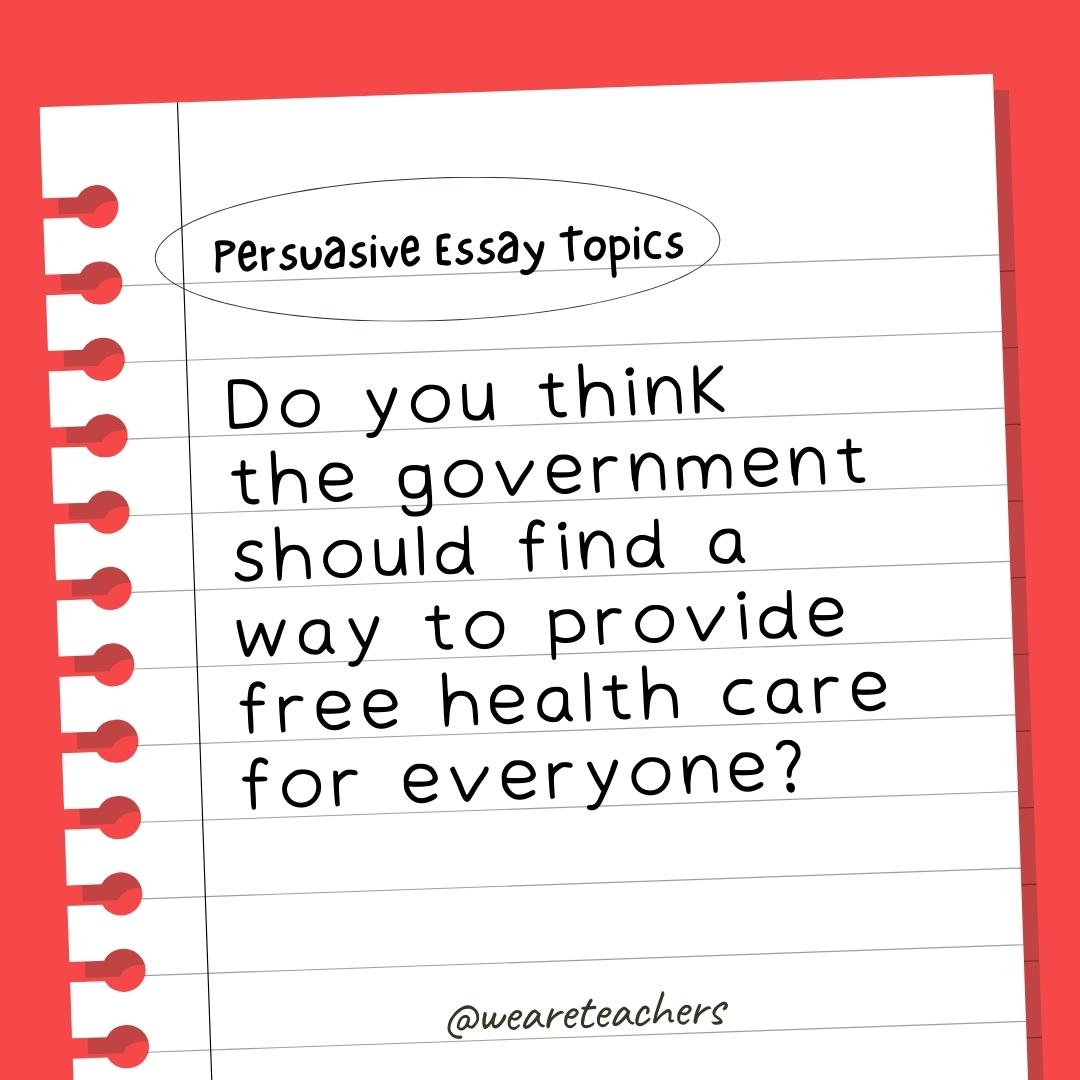
- Is it better to save your allowance or spend it?
- Should we ban plastic bags and bottles?
- Which is better, living in the city or in the country?
- If I could make a new law, it would be …
- Is Pluto a planet?
- Should human cloning be legal?
- Should vaccines be mandatory?
- Is it right for countries to still maintain nuclear weapon arsenals?
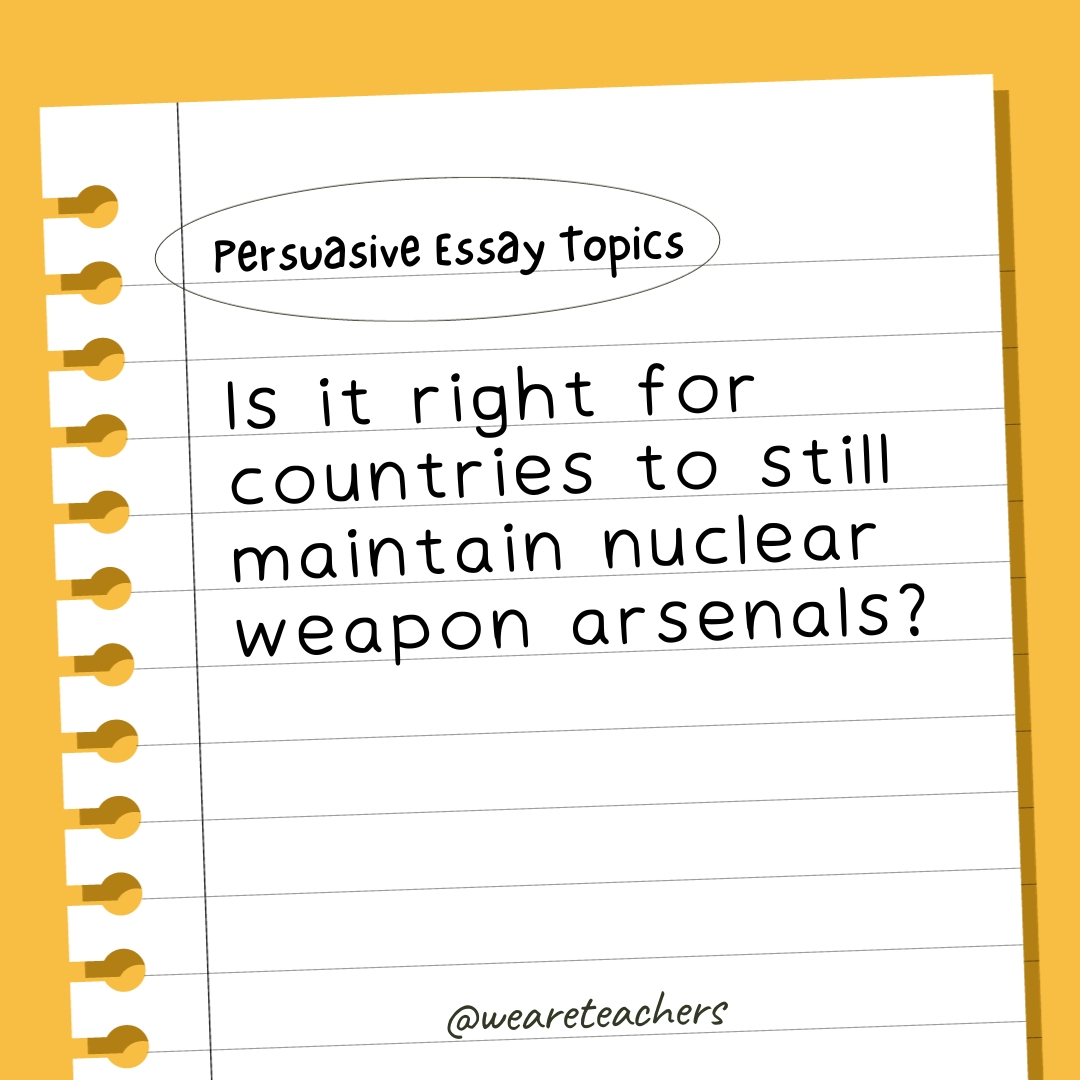
- Should testing on animals be made illegal?
- Will expanded use of artificial intelligence be good for humanity?
- Should all people have free Internet access in their homes?
- Is there intelligent life on other planets?
- Does technology create more jobs than it eliminates?
- Should parents use their children’s cell phones to track where they are?
- Should scientists try to develop a way for people to live forever?
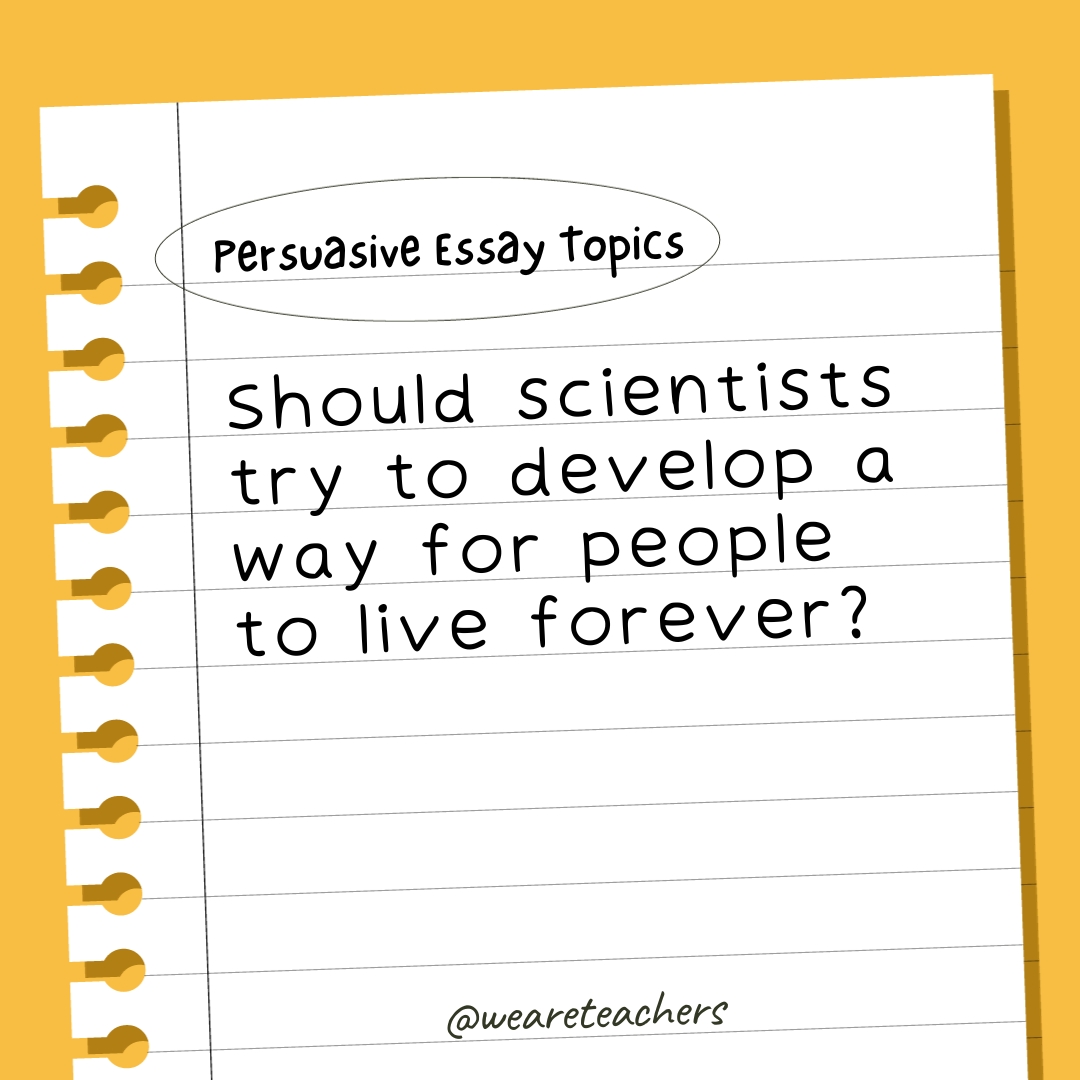
- What’s the best type of smartphone: Android or iPhone?
- Which is better, Macs or PCs?
- Do people rely too much on technology in the modern world?
- Should cryptocurrencies replace cash?
- Should there be a minimum age requirement to own a smartphone?
- Is it important to keep spending money on space exploration, or should we use the money for other things?

- Should kids under 13 be allowed to use social media sites?
- Should we ban cigarette smoking and vaping entirely?
- Is it better to be an animal that lives in the water or on land?
- Should kids be allowed to watch TV on school nights?
- Which is better, paper books or e-books?
- Is the current movie rating system (G, PG, PG-13, etc.) effective?
- Are video games better than board games?
- Should we allow little kids to play competitive sports?
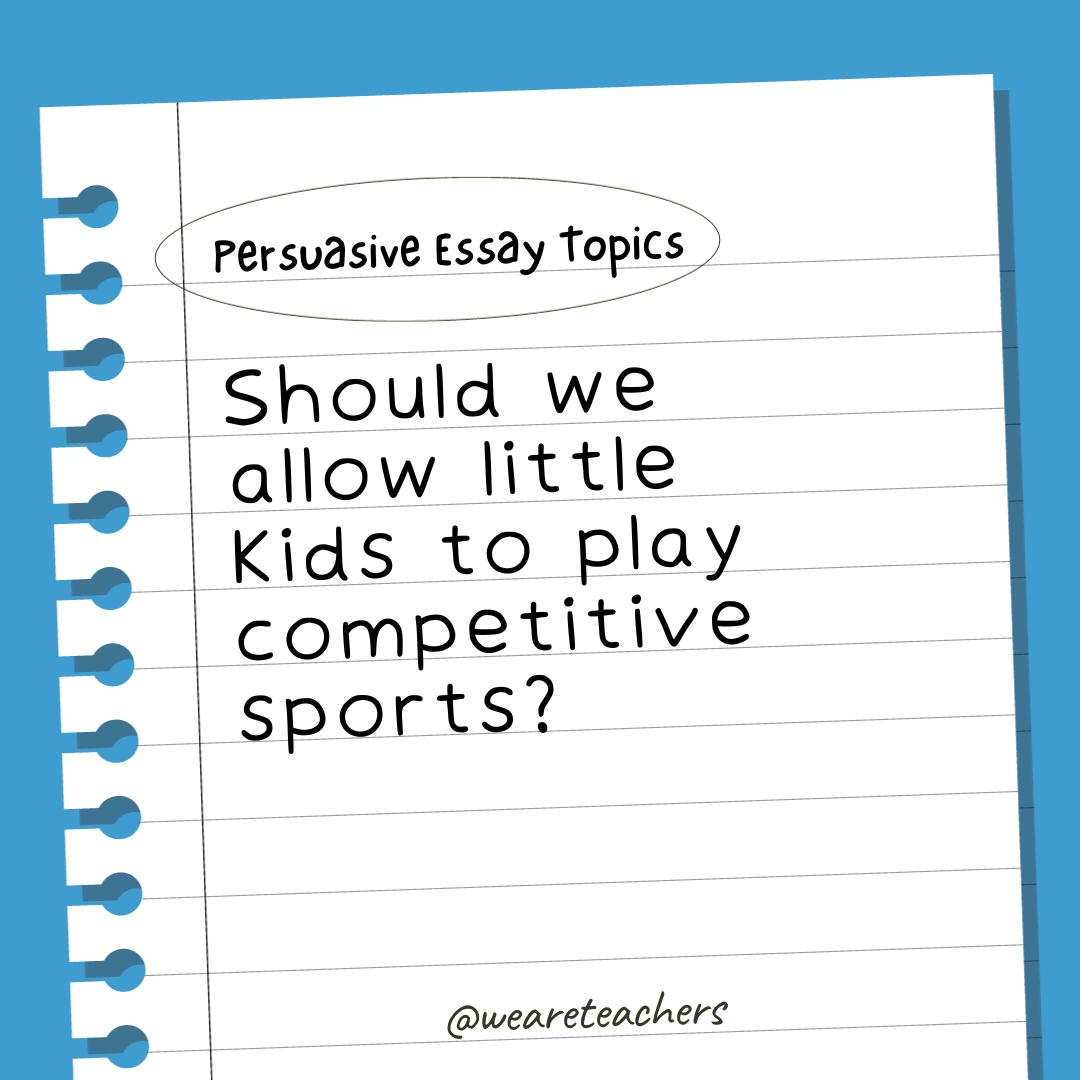
- Which is better, reading books or watching TV?
- Does playing violent video games make people more violent in real life?
- Are graphic novels just as valuable as traditional fictional books?
- Should everyone play on the same sports teams, regardless of gender?
- Choose a book that’s been made into a movie. Which was better, the movie or the book?

- Who is the world’s best athlete, present or past?
- Are professional athletes/musicians/actors overpaid?
- Which is better, fiction or nonfiction?
- The best music genre is …
- What is one book that everyone should read?
- What new sport should be added to the Olympics?
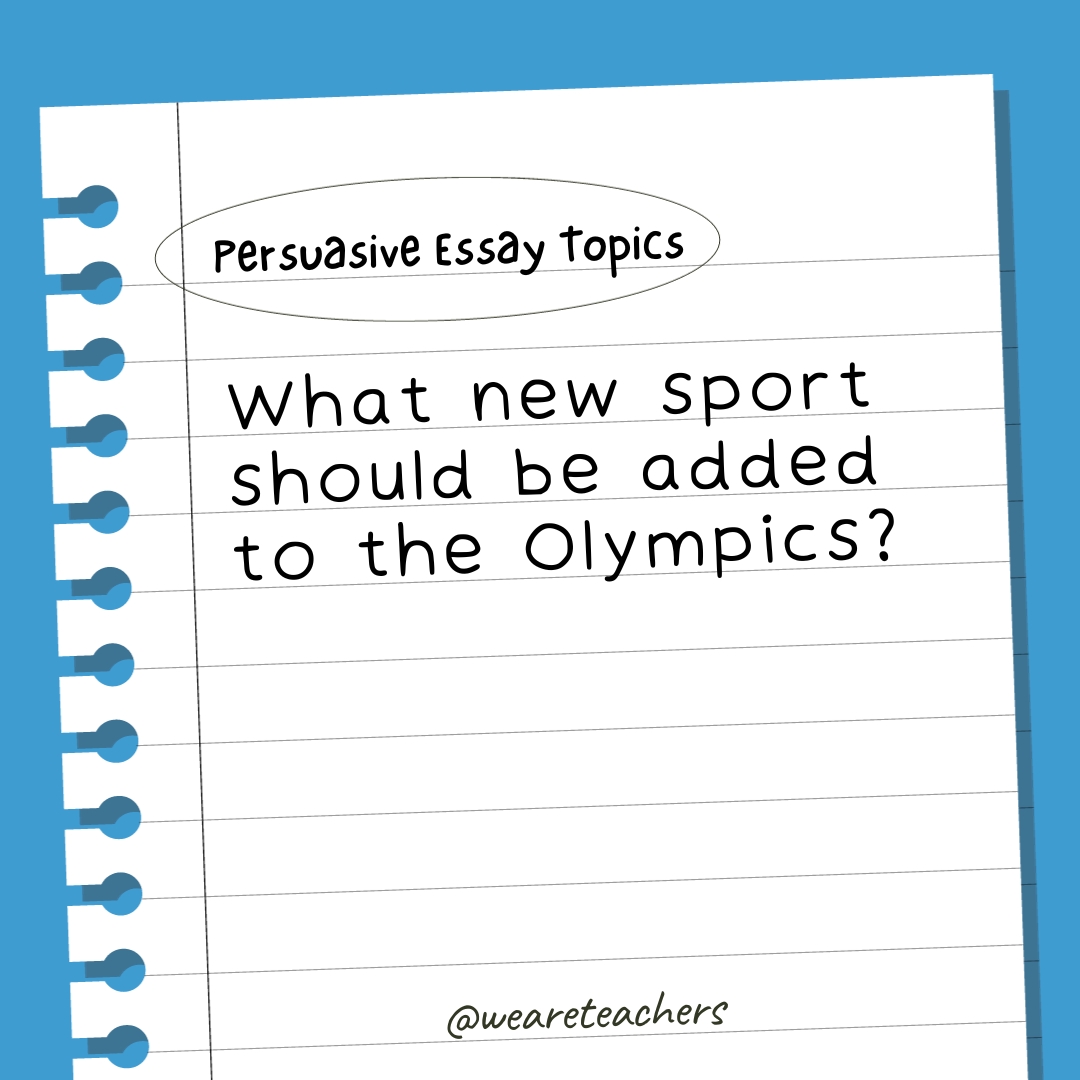
- What’s the best video game system?
- Does playing video games make you smarter?
- Does reality TV actually depict real life?
- Should all neighborhoods have free parks and playgrounds?
- What’s the best holiday?
- The very best food of all time is …
- Which is better, artificial Christmas trees or real ones?
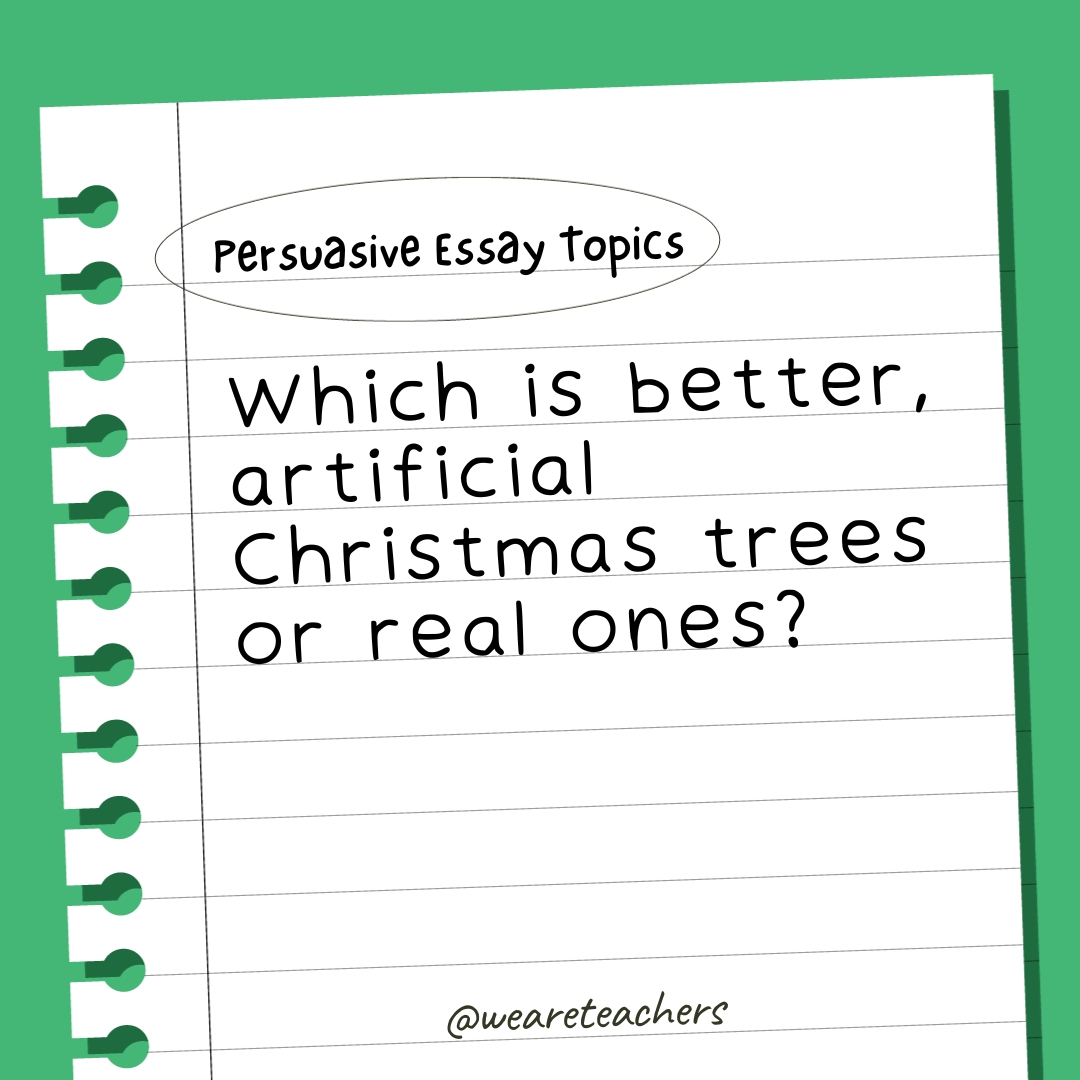
- What’s the best season of the year?
- Should you put ketchup on a hot dog?
- Is a taco a sandwich?
- Does fruit count as dessert?
- Should people have to go to school or work on their birthday?
- Are clowns scary or funny?
- Which is more dangerous, werewolves or vampires?
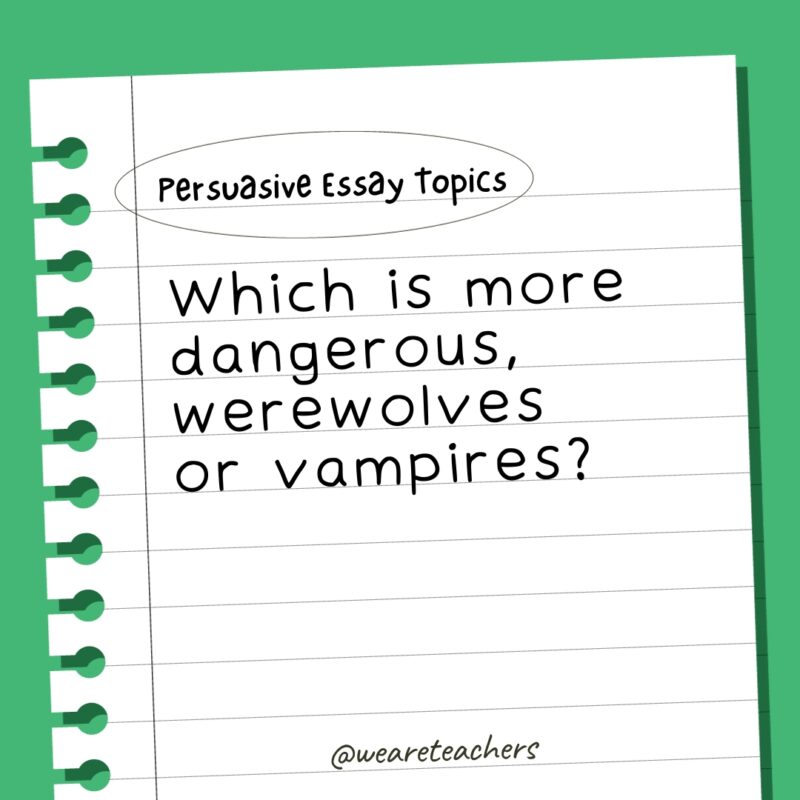
- The best pizza topping is …
- What would be the best superpower to have?
- Should everyone make their bed every day?
- Which came first, the chicken or the egg?
- Should you put pineapple on a pizza?
- Should you eat macaroni and cheese with a spoon or a fork?
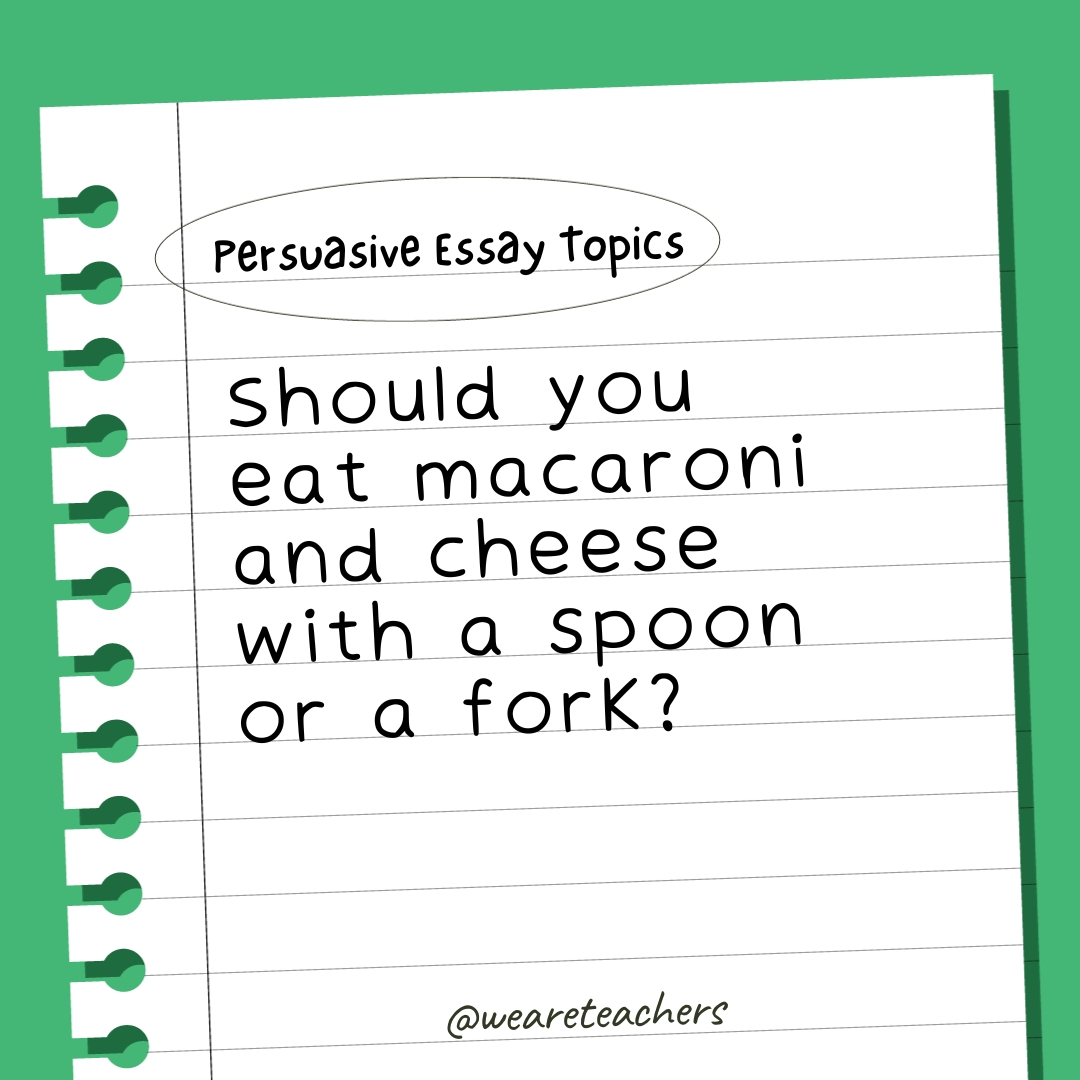
- Describe the world’s best ice cream sundae.
- Is Monday the worst day of the week?
- Would you rather travel back in time or forward in time?
- Is it better to be too hot or too cold?
- Are there aliens living among us here on Earth?
What are your favorite persuasive essay topics for students? Come exchange ideas in the We Are Teachers HELPLINE group on Facebook .
Plus, check out the big list of essay topics for high school (120+ ideas) ..
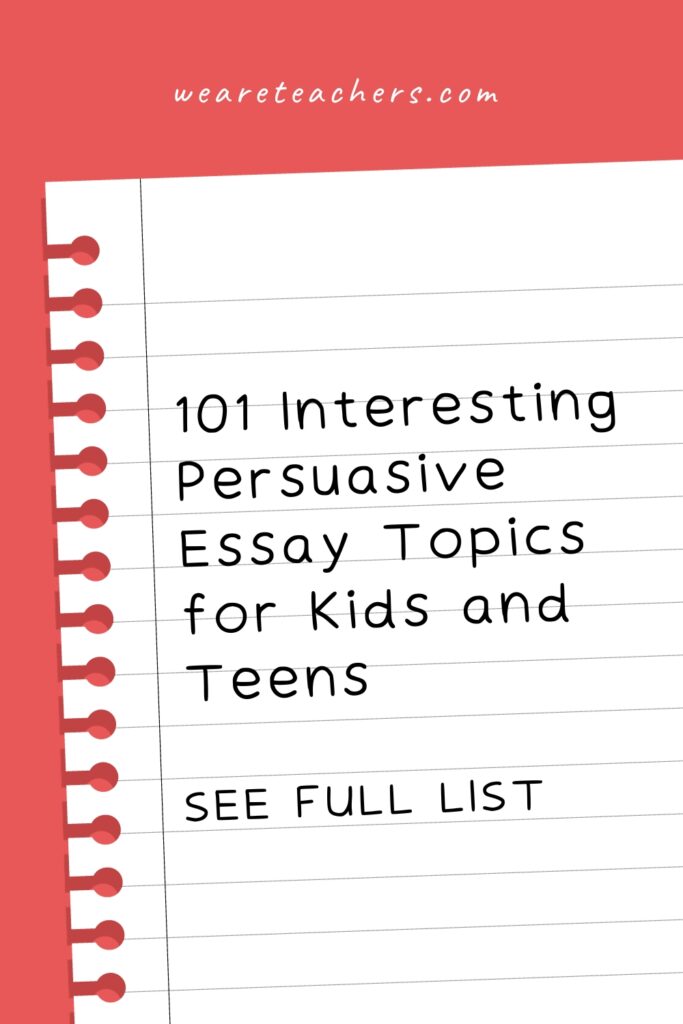
You Might Also Like

40 Strong Persuasive Writing Examples (Essays, Speeches, Ads, and More)
Learn from the experts. Continue Reading
Copyright © 2023. All rights reserved. 5335 Gate Parkway, Jacksonville, FL 32256

COMMENTS
Persuasive Essay Format Example. A persuasive essay outline is bound to follow a specific format and structure. The main elements of a persuasive essay format are as follows. Font: Times New Roman, Georgia, or Arial. Font Size: 16pt for the headlines and 12pt for the rest of the text. Alignment: Justified.
Thesis statement: Let the audience know your stance. After surveying the topic in the first part of the introduction, it is now time for the student writer to express their opinion and briefly preview the points they will make later in the essay. 2. Body Paragraphs.
Harvey Milk's "The Hope" Speech. Sample lines: "Some people are satisfied. And some people are not. You see there is a major difference—and it remains a vital difference—between a friend and a gay person, a friend in office and a gay person in office. Gay people have been slandered nationwide.
Persuasive Essay Outline explanation . Structure of a five paragraph persuasive essay ; Introduction (3-5 sentences) Hook: Grab the reader's attention with a quote, scenario, question, vivid description, etc. Must be related to your topic. (1-2 sentences) Thesis statement: Simply and clearly state your position on the issue(1 sentence )
Make a claim. Provide the grounds (evidence) for the claim. Explain the warrant (how the grounds support the claim) Discuss possible rebuttals to the claim, identifying the limits of the argument and showing that you have considered alternative perspectives. The Toulmin model is a common approach in academic essays.
The persuasive essay typically presents a clear thesis statement, followed by well-structured paragraphs that provide evidence and examples supporting the author's position. The ultimate goal is to inform and influence the reader's beliefs or behavior by appealing to their emotions, logic, and sense of reason.
Summary: Argumentative Essay Sample. Argumentative essays are persuasive essays that use facts and evidence to support their side of the argument. Most argumentative essays follow either the Toulmin model or the Rogerian model. ... In high school she scored in the 99th percentile on the SAT and was named a National Merit Finalist. She has ...
The last time you wrote a persuasive essay may have been in high school or college, but the skill of writing a strong persuasive argument is always a useful one to have. Persuasive writing begins with a writer forming their own opinion on a topic, which they then attempt to convince their reader of this opinion by walking them through a number of logical and ethical arguments.
Persuasive essay structure and format. The basic structural persuasive essay outline is, indeed, 5 paragraphs. It can be more, of course, and often will be, as you should try to keep each point supporting your main argument, or thesis, to one paragraph. Typical structure for a persuasive essay: Introduction. Body paragraphs (3 or more) Conclusion.
List of 113 Good Persuasive Essay Topics. Below are over 100 persuasive essay ideas, organized into ten categories. When you find an idea that piques your interest, you'll choose one side of it to argue for in your essay. For example, if you choose the topic, "should fracking be legal?" you'd decide whether you believe fracking should ...
Tap into the power of imagery in your classroom to get your students to master INFERENCE as AUTHORS and CRITICAL THINKERS. This YEAR-LONG 500+ PAGE unit is packed with robust opportunities for your students to develop the critical skill of inference through fun imagery, powerful thinking tools, and graphic organizers. DOWNLOAD NOW.
2 Steps to Write a Persuasive Essay. 2.1 Prepare for Writing Your Persuasive Essay. 2.2 Conduct Advanced Academic Research. 2.3 Outline Your Essay. 2.4 How to Write a Persuasive Essay: Introduction. 2.5 Write the Body of the Essay. 2.6 Make a Solid Conclusion. 2.7 Edit and Proofread Your Essay.
Tablets for San Antonio Independent School District (SAISD) Maggie Durham Purdue University Global CM220: Composition Two Dr. Thomas Huston August 1, 2015 Please note that this is a sample essay to help inspire and guide your own original writing of a persuasive essay assignment. Be sure to review your assignment instructions and grading rubric,
However, you need to know the basics when it comes to writing a high school essay. 1. Understand the Essay Prompt. Carefully read the essay prompt or question to understand what's required. Identify the type of essay (narrative, persuasive, expository, etc.) and the main topic you need to address. 2.
You may want to share the following five steps with your class to teach them how to write this style of essay—and then use the 23 persuasive essay topics for high school students listed below to help them get started! 1. Choose a Clear Position. Before you begin writing and researching, choose the position you want to take.
Persuasive Essay Examples for Elementary Students. At primary school, teachers assign essays to students as a way of improving their writing skills. However, the essays are very simple and not very complex, so the students easily write them. Below are some good persuasive essay topics for primary school kids. Persuasive Essay Examples for 3rd Grade
A Persuasive Essay Has 3 Components. Introduction: This is the opening paragraph of your essay. It contains the hook, which is used to grab the reader's attention, and the thesis, or argument, which you'll explain in the next section. Body: This is the heart of your essay, usually three to five paragraphs in length.
In this student paper, the student makes a persuasive case for the value of technical high schools in Georgia. As you read, pay attention to the different persuasive devices the writer uses to convince us of her position. Also note how the outline gives a structure to the paper that helps lead the reader step-by-step through the components of ...
This will enable you to tailor your persuasive essay accordingly to ensure that it has a maximum persuasive impact. 2. Research Thoroughly. Strong persuasive essays are rooted in solid research. When researching for your essay topic, get as much information as possible to make a persuasive case. 3.
101 Interesting Persuasive Essay Topics for Kids and Teens. Use your words to sway the reader. Persuasive writing is one of those skills that can help students succeed in real life. Persuasive essays are similar to argumentative, but they rely less on facts and more on emotion to sway the reader.
Sample Persuasive Essay. The purpose of a persuasive essay is to convince the audience to change their views on an important issue or to take action to change something. In the following example, writer Barbara Duddles argues against the use of uniforms in school. Notice that the essay follows the proper MLA format.